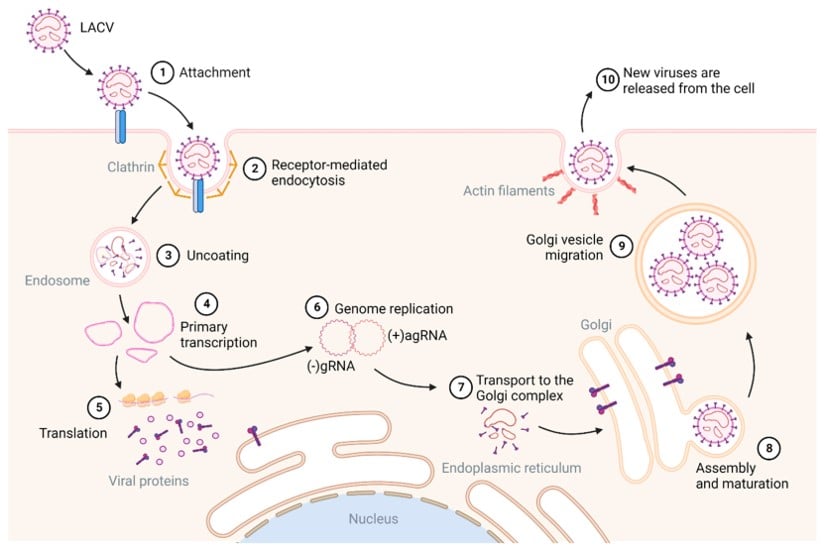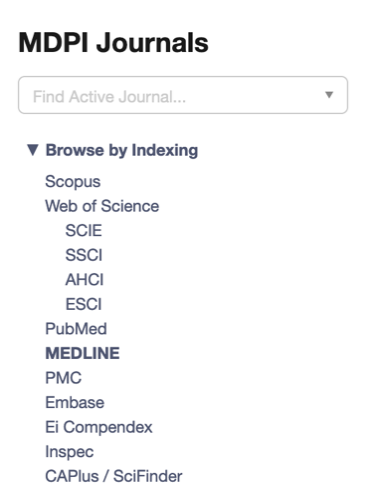
Journal Menu
► ▼ Journal Menu-
- Viruses Home
- Aims & Scope
- Editorial Board
- Reviewer Board
- Topical Advisory Panel
- Instructions for Authors
- Special Issues
- Topics
- Sections & Collections
- Article Processing Charge
- Indexing & Archiving
- Editor’s Choice Articles
- Most Cited & Viewed
- Journal Statistics
- Journal History
- Journal Awards
- Society Collaborations
- Conferences
- Editorial Office
Journal Browser
► ▼ Journal BrowserNeed Help?
Announcements
19 August 2024
MDPI’s 2023 Young Investigator Awards—Winners Announced
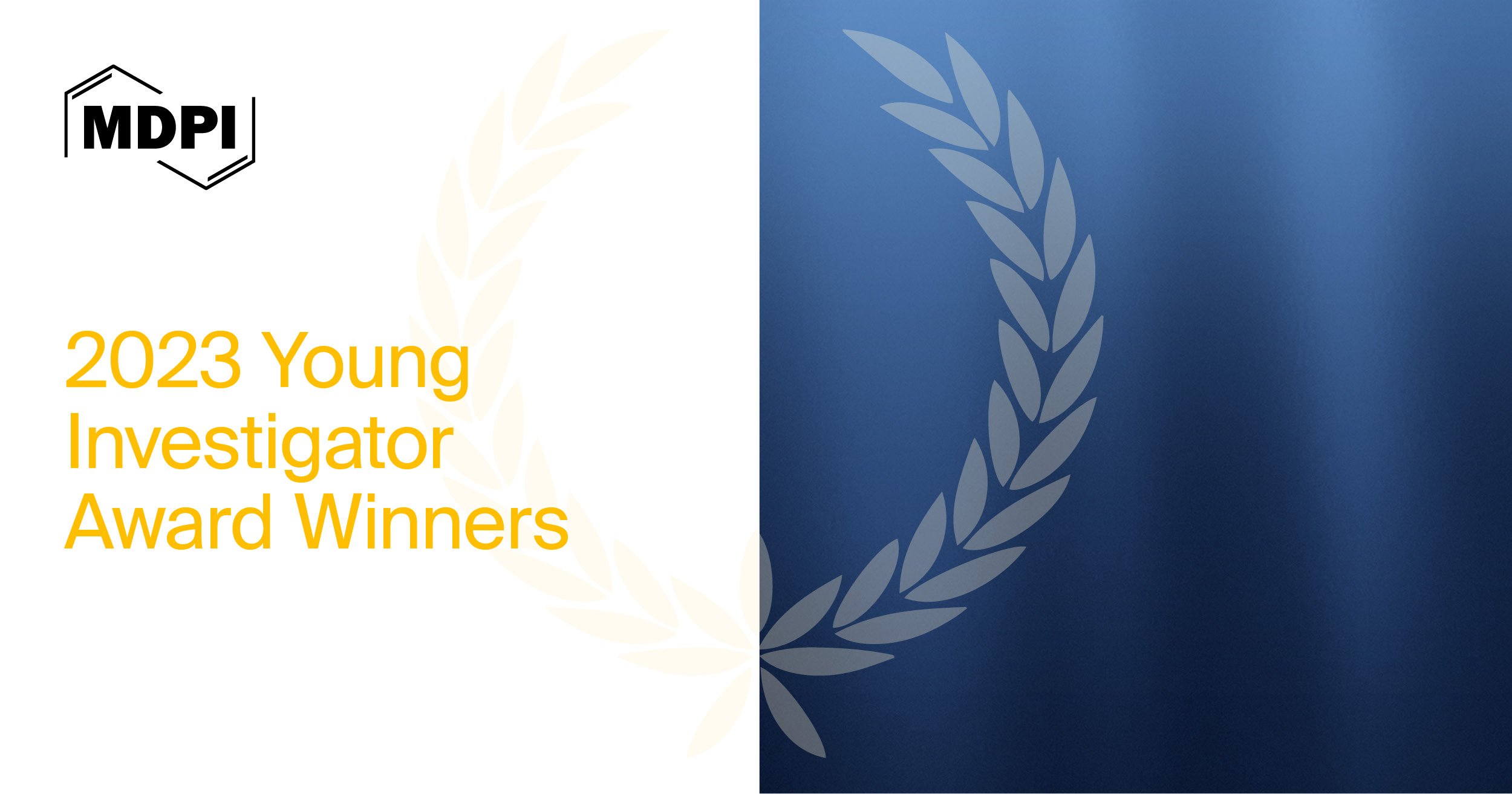
MDPI’s Young Investigator Awards recognize promising early career scientists, acknowledge their contributions, and foster collaboration within the scientific community. We are proud to announce the recipients for 2023, who were carefully selected by the journals’ esteemed Award Evaluation Committee.
We extend our heartfelt congratulations to the 79 winners of MDPI’s 2023 Young Investigator Awards for their excellent contributions in their research field. We look forward to seeing these rising stars continue to contribute to the advancement of science.
MDPI will continue to support and recognize the academic community. To explore details about the awardees by field, please visit the individual pages listed below:
Congratulations to all the winners for their exceptional contributions and dedication to advancing scientific research.
About MDPI Awards:
To support the academic community, particularly young researchers, and to enhance communication among scientists, MDPI journals regularly offer various awards to researchers in specific fields. These awards, serving as a source of inspiration and recognition, help to elevate the profiles of talented individuals who have made outstanding achievements and are making significant contributions to advancements in their respective fields.
To find out more about MDPI awards, please click here.
7 August 2024
MDPI Insights: The CEO's Letter #14 - New Headquarters, Marketing, Poland

Welcome to the MDPI Insights: The CEO's Letter.
In these monthly letters, I will showcase two key aspects of our work at MDPI: our commitment to empowering researchers and our determination to facilitating open scientific exchange.
Opening Thoughts
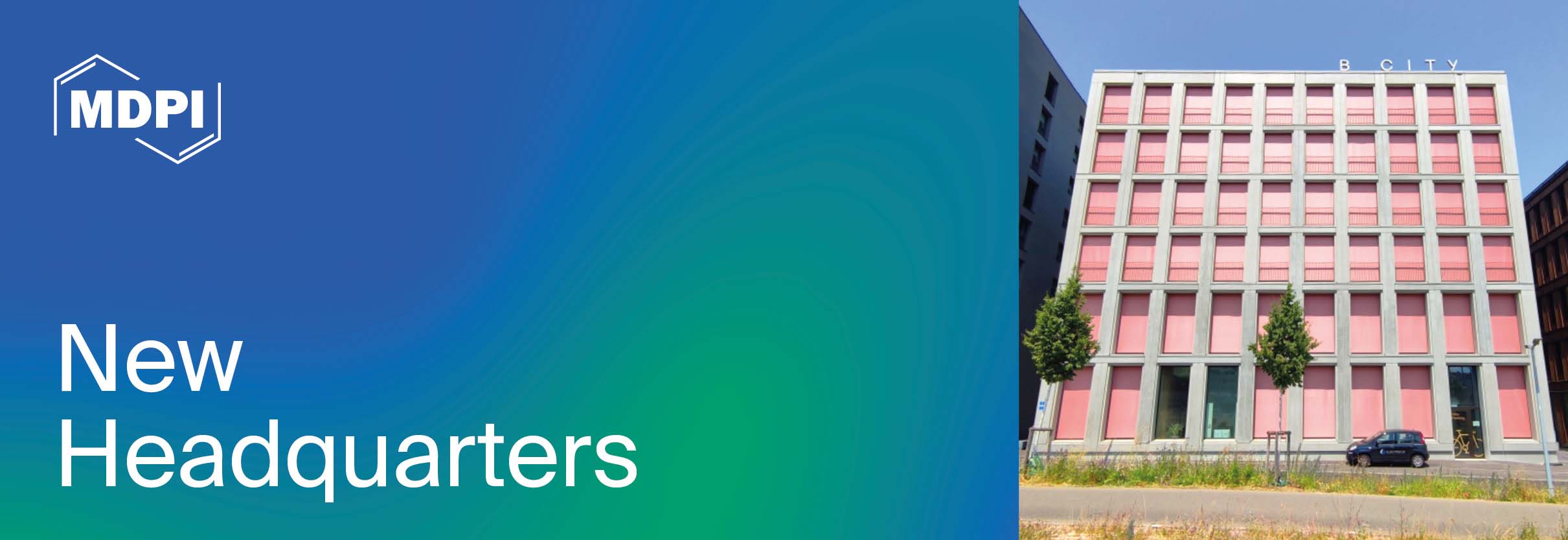
MDPI Moves to New Headquarters in Basel, Switzerland

I am excited to share that MDPI has moved to a new state-of-the-art office space in Basel, Switzerland. This move consolidates our operations by bringing together our two previously separated Basel offices into one central location.
We are always growing our talent pool and encourage you to view our Careers Page for the positions available in Basel and across our offices.
New Address: Grosspeteranlage 5, CH-4052 Basel, Switzerland
Effective Date: 1 July 2024
This new chapter in our company’s journey is designed to continue our mission of positioning MDPI as a leader in Open Access (OA) publishing, highlighting our commitment to making scholarly research accessible to everyone.

Boasting modern amenities, improved meeting and event spaces designed to support our growing needs, the new location provides a more collaborative and efficient working environment for our employees. The location offers convenient accessibility to public transportation and is situated near the Basel SBB railway station, with a variety of nearby services and amenities.
In fact, I can see the trains right outside of my window as I write these lines!
This move marks an exciting milestone in MDPI’s development, and I am confident that the new headquarters will serve as an inspiring and productive space for everyone. We also very much look forward to welcoming visitors here. You can read more about MDPI's history here.
“This new chapter continues our mission of positioning MDPI as a leader in OA publishing”
For Those New to MDPI
A pioneer in scholarly, Open Access publishing, MDPI has supported academic communities since 1996. MDPI is leading the transition to Open Science by making a greater proportion of the research conducted worldwide free and accessible to everyone. To date, over 3.5 million researchers have entrusted MDPI with publishing their scientific discoveries. MDPI’s editorial process is bolstered by a network of dedicated reviewers, a team of 6,000 professional, well-trained staff members, and an in-house article submission platform designed to ensure efficient processes within its 440 fully Open Access titles. MDPI supports more than 800 academic institutions worldwide, helping them adhere to national mandates while facilitating authors’ publication in fully compliant (CC BY) Open Access journals.
Impactful Research
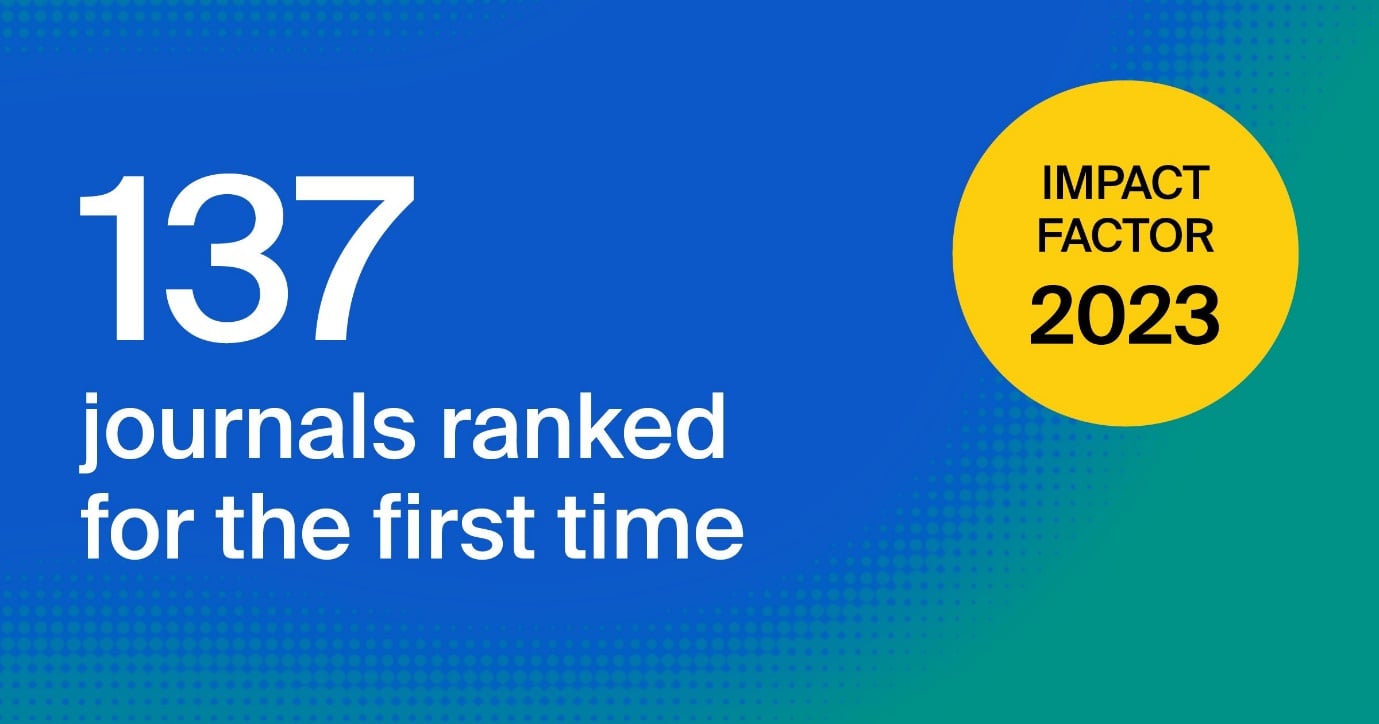
New and Emerging MDPI Journals Making an Immediate Impact
Unpacking some of the Impact Factor updates from the June CEO Letter, I wanted to dive a little deeper into the 137 MDPI journals which received Impact Factor for the first time.
Academic authors highly value efficient publishing processes, robust editorial support, and the opportunity to publish in high-impact journals. We are proud that our newly launched journals typically achieve coverage in the Emerging Sources Citation Index (ESCI) of the Web of Science within just a few years, with a median time of only three years from release to inclusion.
As part of our commitment to advancing academic research and providing high-quality OA publishing, we actively seek new research areas to expand our portfolio of journals. We have a proven track record of successfully establishing new journals.
Our dedicated teams excel in fostering dynamic editorial boards and working closely with Editors-in-Chief (EiC) to define the precise scope and focus of each new journal. Our expertise extends to collaborating with indexing services, ensuring that our journals comply with best practices and are indexed promptly in all relevant databases.
Emerging Titles Ranked for the First Time
Our commitment to excellence is reflected in the annual impact metrics released this past June. The latest edition of the Journal Citation Reports (JCR) showcases the integration of journals from the ESCI in the new unified category rankings, providing a simplified and more complete view of all journals within each subject category, including newly established titles.
Out of 137 new and developing MDPI journals ranked in the 2024 release, 79 are in the top half (Q1 or Q2) of their categories. Here is a breakdown of the number of MDPI’s ESCI-indexed journals by quartile in the JCR:
| Quartile | No. of journals |
| Q1 | 17 (12.4%) |
| Q2 | 62 (45.3%) |
| Q3 | 43 (31.4%) |
| Q4 | 15 (10.9%) |
| Not ranked (humanities-related journals) | 2 |
These rankings highlight our success in rapidly establishing high-impact new journals. Among those that made it directly into the top 25% of their category are the International Journal of Neonatal Screening, Journal of Xenobiotics, Polysaccharides, Smart Cities, and thirteen other journals.
You can browse MDPI journals by Indexing. Simply visit our Journals page and select from the list of Indexing bodies in the top left-hand corner.
Inside MDPI

MDPI Corporate Marketing Strategy and Team Meeting 2024
In July, I hosted the annual Corporate Marketing strategy and team-building activity with 15 of our team members.
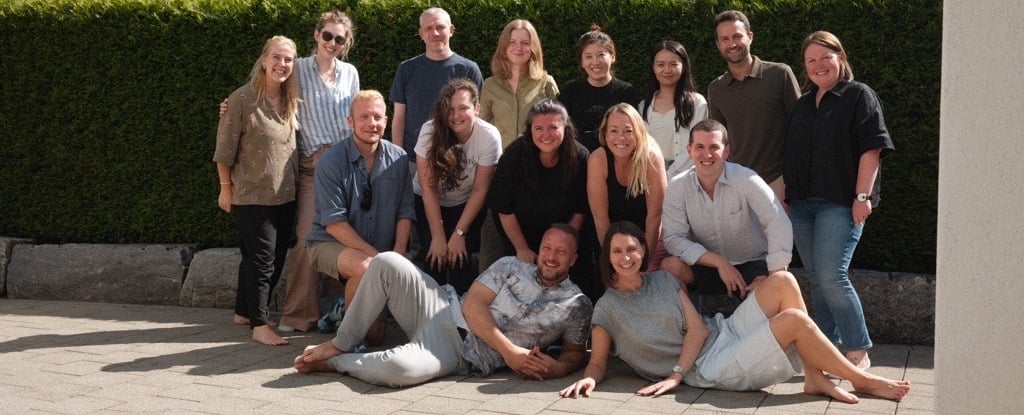
The aim was to align the Corporate Marketing strategy with MDPI's goal of becoming the world's most trusted OA publisher. While we provide a high-level publishing experience for our authors, as seen from our surveys, we need to keep building on our transparent and open communication to foster trust within the scholarly community and continue enhancing our reputation.
The Corporate Marketing team plays an important role as the mouthpiece for all our major activities within MDPI, especially those that model what it means to be a trusted partner. The purpose of the strategy meeting was to develop a feeling of trust in one another and an understanding of how to inspire trust in the stakeholders with whom we interact.
“We need to keep building on our transparent and open communication to foster trust within the scholarly community”

We conducted a set of activities to facilitate that sense of mutual trust and trustworthiness. Examples of some activities we worked on during this strategy-building event include:
- Exploring what trust means
- ‘Letter to self’
- ‘The brand I most trust’
- Most Trusted Academic Publisher
- ‘The brand I would like MDPI to become’
- ‘The 2029 MDPI Annual Report’
- Voice of Customer and Share of Voice – survey/data update on MDPI Brand Experience and Brand Perception
- Integrate Trust-Based Objective into Marketing Plan
- ‘Becoming the MDPI experience’
- ‘Trusting the next steps’
While two days is not enough to finalize a marketing strategy, it is sufficient to get everyone who attended into the mindset of the direction in which we are working. From here, we will develop a program with next steps on main projects, update communications, and collaborate with team leads to incorporate this approach into our work going forward.
As a marketing team, we can communicate our messages, but trust has to be built at every touchpoint in the stakeholder journey. Just talking about it isn’t enough. We need to be about it. That’s a role each of us plays, from editorial to IT, from marketing to HR. We must build trust from the inside out. It starts with each manager and resonates out via every team member.
As a company, our goal is to give all stakeholders with whom we interact – whether internal or external – the experience of working with an organization it can trust.
Coming Together for Science
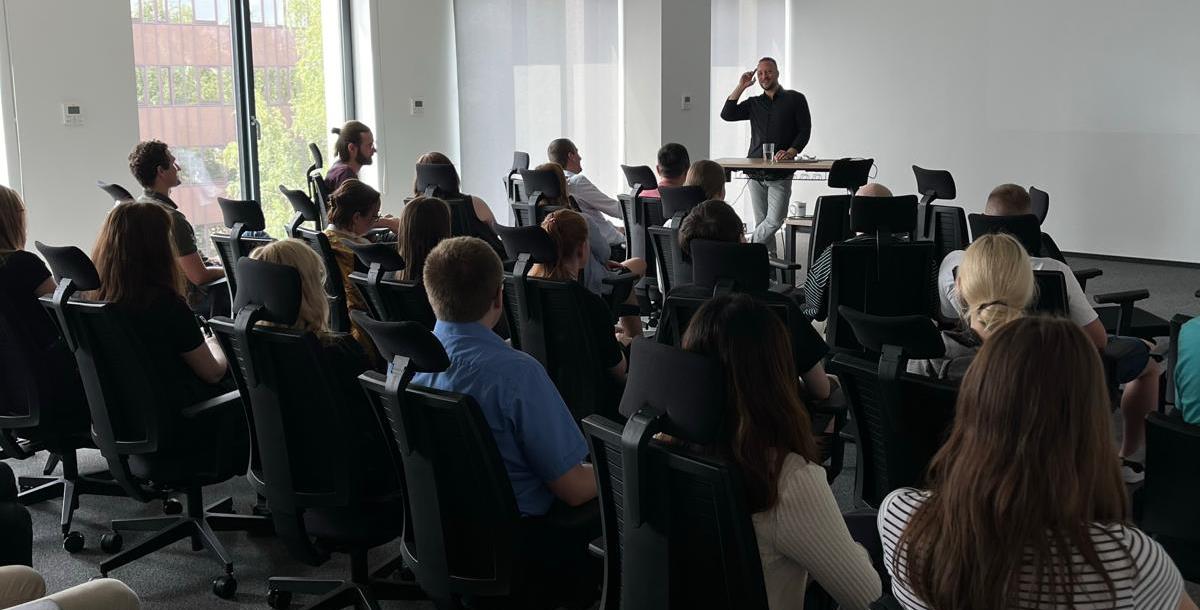
MDPI in Poland: Krakow Office
In July, I had the pleasure of visiting our Krakow office, following my recent trip to Warsaw to meet with the Polish Ministry of Science and Higher Education.

During these visits, I prioritized meeting with our Office Manager, Editorial Director, Group Leads, and members from various teams, including editorial, production, marketing, and journal relationship specialists, to understand their roles and current challenges. Instead of a formal presentation, I opted for an open discussion, sharing updates from headquarters to engage with colleagues in a more personal way.
Our Krakow office has many things to be proud of, including a large number of PhD colleagues (over a third of its staff holds a PhD degree). Krakow provides an opportunity for expanding beyond the 100 colleagues we currently have, by adding new hires in departments including editorial, production and marketing, among others.
About our Krakow office
- Opened in 2020
- 99 staff members as at 1 August 2024
- Main Departments include Editorial, Production, English Department, JRS, PR
Our Krakow office participates in international conferences, conducts author trainings and scholar visits, and engages in local market outreach. The office is also a member of the Polish Chamber of Commerce for High Technology (IZTECH) and is working on expanding its local engagement.
Krakow is the second-largest city in Poland, with a population of about 800,000. It also has a large student population of around 128,000, with seven universities. This means that roughly one in every eight residents is a student.
Poland and MDPI

Poland is a crucial market for MDPI. From 2020 to June 2024, Poland ranked 7th in submissions and 5th in publications for MDPI research articles. As at 31 July 2024, Poland ranks 7th in total MDPI publications, with approximately 70,000 research papers.
Between 2020 and June 2024, 61,500 authors from Poland published with MDPI. As at 30 June 2024, there are 1,205 active Editorial Board Members (EBMs) from Poland, with 661 EBMs (55% of the total) having an H-index over 25.
We also have four Editors-in-Chief (EiC) from Poland leading our journals: Coatings, Venereology, Advances in Respiratory Medicine, and Limnological Review, along with six Section EiC.
In 2023, we received approximately 21,000 submissions from Polish-affiliated authors, of which 12,032 were published.
“Poland is a crucial market for MDPI”
Meeting with Ministry of Education

On 22 July, we visited Warsaw to meet with the Polish Ministry of Science and Higher Education.
We were pleased to learn that they are strong supporters of the OA publishing model and value MDPI’s approach to the peer-review process, including our high ethical standards for quality control.
In 2023 Polish authors predominantly published their papers in OA, with MDPI holding the largest market share in OA publications within the country.
Our commitment to collaborating with Polish institutions is evident through our 33 Institutional Open Access Program (IOAP) agreements with prestigious institutions such as the University of Warsaw, the University of Wroclaw, the Jagiellonian University, and Gdańsk University of Technology. Through IOAP discounts, a healthy waiver rate, and our peer-review voucher system, we provide the Polish scholarly community with significant savings in OA publishing. The Minister greatly appreciated these efforts and our commitment to offsetting some of the APC costs.
We discussed industry concerns about the threat of papermills and presented the preventive measures MDPI has in place to mitigate this risk and uphold high ethical standards. We informed them of our commitment to combating papermills, including our involvement with United2Act and the STM Research Integrity Hub, as well as our efforts to expand our research integrity team and explore proactive measures.
Closing Thoughts

MDPI Thought Leadership Op-ed on Open Access is Now Live on Politico
I am pleased to share that our thought leadership Op-ed piece on Open Access (OA) is now live on Politico. This is a nice push for continued influence and support of OA among policymakers and industry leaders.
Why Politico?
Politico's reputation as a highly credible and influential news platform makes it an important venue to reach key opinion leaders (KOL) from academia, policymakers, and thought leaders from many industries. This visibility helps promote the OA philosophy.
Open Access: A Moral Imperative for Progress
In this piece, I discuss the necessity of making scientific research freely available to all. I argue that publicly funded research should be publicly accessible, highlighting how OA democratizes scientific knowledge, accelerates research availability, and fosters collaboration.
“Open Access is a fundamental right for all citizens”
Democratizing scientific communication
The impulse to democratize scientific communication is nothing new. OA may seem like a recent innovation, but its principles have historical roots traceable to Europe in the 15th century. Just as the printing revolution accelerated the dissemination of new ideas, OA publishing unlocks new scientific insights that would otherwise only be accessible to a few.
Benefits for scholars: amplifying impact through Open Access
Authors publishing in an OA journal can expect more citations of their work, increasing its potential impact. Research findings that are freely available are more likely to be cited than those hidden behind a paywall. Freedom of access greatly increases the potential audience for each paper, fostering a sense of community among researchers worldwide. Heightened visibility can attract prospective collaborators and employers for young scientists. At MDPI, we believe that all these factors can only accelerate the advance of science. Additionally, authors retain copyright in their work instead of signing it away, permitting broader dissemination under Creative Commons licenses and increasing its capacity for impact.
The moral imperative
OA is not just a matter of scientific policy; it is a fundamental right for all citizens and a prerequisite for a brighter, more informed future. Publicly funded research should be a top priority, and I am pleased to see policy moving in this direction. Our capacity to generate transformative scientific insights has to be democratized. The question today is no longer whether we can afford to embrace OA; rather, it is whether we can afford not to.
Chief Executive Officer
MDPI AG
2 August 2024
MDPI Romania Author Training Sessions in May
In May, MDPI Romania held three author training sessions – one endorsing an external event and two stand-alone sessions.
The National Session of Scientific Student Communications took place at Technical University Cluj on 17 and 18 May 2024. MDPI Romania sponsored this event and contributed an author training session on the production of research papers and case study analyses. JRS Norbert Kiss gave a presentation called The World of Open Access to explain different open access publishing models and the benefits of open access publishing. His presentation highlighted the impact of open access publishing on scientific progress and innovation.
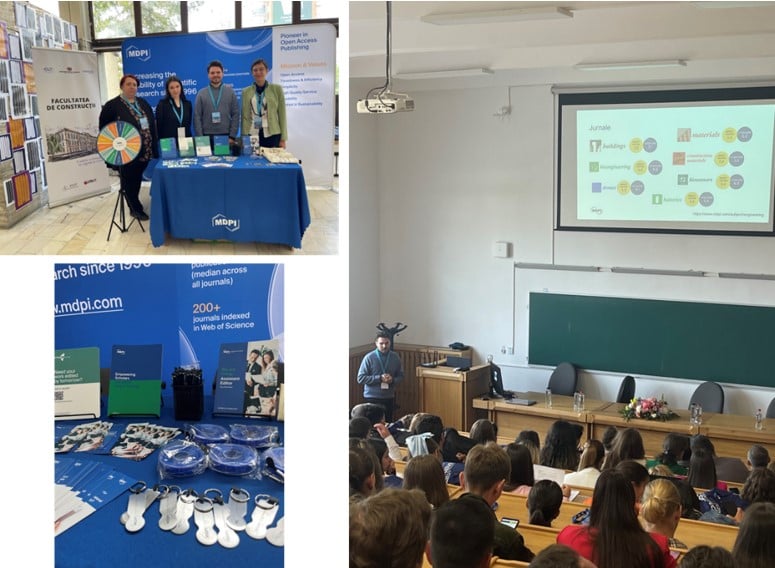
On 29 May 2024, MDPI Romania hosted an author training session for Ph.D. students, early career researchers, and professors at the Carol Davila University of Medicine and Pharmacy. In collaboration with Prof. Andreea Arsene, JRS Ioana Paunescu prepared two presentations: The Steps of the Publishing Process and Elaboration of a Peer Review Report. In her first presentation, she delved into MDPI’s history and mission, MDPI’s editorial process, and MDPI journals of various scopes that are accepting submissions. Her second presentation outlined the types of peer review, the contents of a peer review report by an MDPI reviewer, and the responsibilities of an MDPI reviewer.
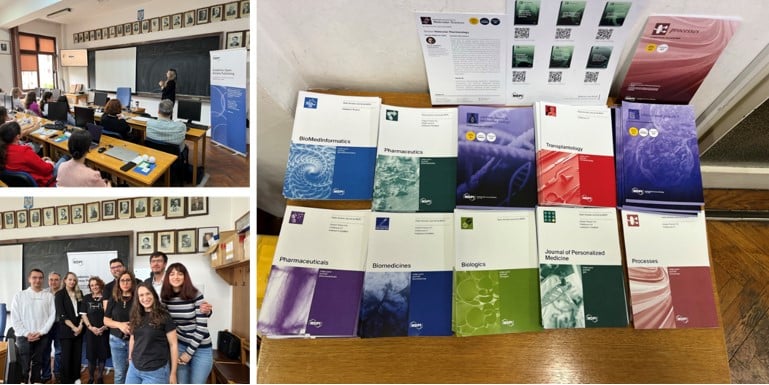
MDPI Romania also hosted an author training session at the Iasi University of Life Sciences on 29 May 2024. JRSs Laurentiu Preda and Cosmin Artan gave four presentations: Efficient Writing of an ISI-Indexed Scientific Article, Benefits of Publishing in the Open Access Model, Various Methods of Open Access Publishing, and MDPI Guide for the Article Review Process. The first three presentations offered guidance on how to improve academic writing, the fourth focused on how to write peer review reports. A highly interactive discussion followed the presentations, during which the JRSs provided extensive answers to attendees’ questions.
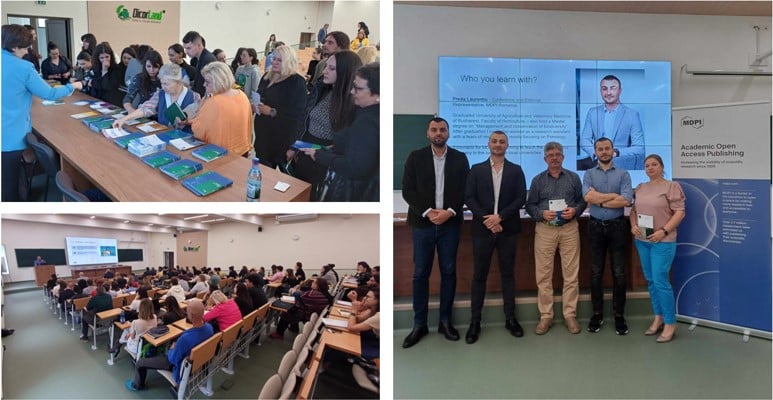
MDPI is grateful for all the attendees, speakers, and organizers involved in these events. Through their enthusiasm and dedication, these events were great successes.
1 August 2024
Behind the Paper: “The Full-Genome Analysis and Generation of an Infectious cDNA Clone of a Genotype 6 Hepatitis E Virus Variant Obtained from a Japanese Wild Boar: In Vitro Cultivation in Human Cell Lines”
Authors: Putu Prathiwi Primadharsini, Masaharu Takahashi, Tsutomu Nishizawa, Yukihiro Sato, Shigeo Nagashima, Kazumoto Murata and Hiroaki Okamoto
Published in the Special Issue “Hepatitis E: Molecular Virology, Pathogenesis, and Treatment” of Viruses on 24 May 2024
Hepatitis E virus (HEV), the causative agent of hepatitis E, represents a significant but largely understudied human pathogen. According to the 2023 World Health Organization report, HEV accounts for approximately 20 million infections worldwide annually, resulting in around 44,000 hepatitis E-related deaths in 2015. HEV primarily spreads through the fecal–oral route, typically via contaminated drinking water in developing countries and through the consumption of undercooked or raw animal meat in industrialized nations (1). HEV belongs to the family Hepeviridae, whereby genotypes 1 and 2 (HEV-1 and HEV-2) within the Paslahepevirus balayani species exclusively infect humans (https://ictv.global/report/chapter/hepeviridae/hepeviridae), while HEV-3 and HEV-4 infect humans as well as several other animal species. HEV-5 and HEV-6 are found in wild boars, while HEV-7 and HEV-8 infect camels. HEV-5, HEV-7, and HEV-8 are reported to infect humans or have the potential to do so (2-4). However, such data are unavailable for HEV-6, and cell culture and reverse genetics systems have not been established for HEV-6 thus far due to the low viral load of two previously identified HEV-6 strains (GenBank accession numbers AB602441 and AB858243).
The primary aim of this study was to identify a new HEV-6 strain with a high viral load from wild boars in Japan, characterize its genetic makeup, and determine whether it could infect human-derived cells to investigate the zoonotic potential of HEV-6. The secondary goal was to construct a full-length cDNA clone and evaluate the effectiveness of ribavirin as a treatment.
This study involved collecting serum and liver specimens from eight wild boars captured in Hyogo Prefecture, Japan, in 2023 and analyzing them for anti-HEV IgG antibodies and HEV RNA. A liver homogenate from an HEV-positive boar (wbJHG_23) was used as an inoculum for human-derived cancer cell lines (PLC/PRF/5 and A549 1-1H8, a subclone of A549). The ability of the virus to infect and propagate in these cells was monitored by measuring HEV RNA titers over time. RNA was extracted from culture supernatants, and a full-length infectious cDNA clone was constructed using reverse genetics. The genetic diversity of the wbJHG_23 strain was analyzed by sequencing and comparing it with known HEV genotypes (HEV-1 to HEV-8). The effectiveness of ribavirin in inhibiting HEV-6 replication was assessed by treating infected cell cultures with various concentrations of the drug and monitoring viral RNA levels. The infectivity of the virus and the expression of HEV ORF2 (capsid) and ORF3 (a multifunctional protein involved in virion assembly and release) proteins were confirmed through Western blotting and immunofluorescence assays.
This study revealed that out of the eight wild boars tested, only one (wbJHG_23) was positive for anti-HEV IgG antibodies and HEV RNA, indicating an active HEV infection. The wbJHG_23 strain was identified as HEV-6, sharing 82.5%83.0% of nucleotide sequence identity with known HEV-6 strains and a lower similarity to other HEV genotypes. Phylogenetic analysis confirmed that wbJHG_23 clustered closely with two previously reported HEV-6 strains. The wbJHG_23 strain successfully infected and replicated in both PLC/PRF/5 and A549 1-1H8 cell lines, with viral RNA titers reaching over 10^8 copies/ml. In addition, Western blotting and immunofluorescence assays confirmed the expression of HEV ORF2 and ORF3 proteins in infected cells, suggesting that HEV-6 has the potential for zoonotic infection. Ribavirin treatment effectively inhibited HEV-6 replication in a dose-dependent manner in both cell lines. The viral RNA titers were significantly reduced in treated cultures compared to untreated controls. A full-length infectious cDNA clone of the wbJHG_23 strain was successfully constructed. RNA transcripts from this clone were transfected into PLC/PRF/5 cells, resulting in the production of infectious virus progeny, demonstrating the functionality of the cDNA clone (Figure 1).

Figure 1. Comprehensive workflow for the generation and analysis of HEV-6 (wbJHG_23) in PLC/PRF/5 cells.
In conclusion, this study successfully identified and characterized a new strain of HEV-6 (wbJHG_23) from a wild boar in Japan, demonstrating its ability to infect human-derived cell lines with high replication efficiency and suggesting the zoonotic potential of HEV-6. This study also demonstrated its susceptibility to ribavirin treatment. The construction of an infectious cDNA clone provides a valuable tool for future research on HEV-6, particularly in studying its zoonotic potential and developing antiviral strategies. The confirmation of the suggested zoonotic transmission of HEV-6 necessitates further investigation through infection experiments involving non-human primates. This study updates previous reports (5-7) on the establishment of cell culture and reverse genetics systems, as well as the zoonotic potential of eight genotypes of HEVs (HEV-1 to HEV-8) within the species Paslahepevirus balayani (Table 1).
Table 1. Establishment of cell culture and reverse genetics systems, and cross-species transmission of Hepatitis E virus within the species Paslahepevirus balayani.
|
Genotype |
Host |
Cell culture system |
Reverse genetics system |
Experimental infection |
Zoonotic potential |
|
HEV-1 |
Human |
Yes |
Yes |
Non-human primate, Mongolian gerbil |
No |
|
HEV-2 |
Human |
No |
No |
No |
No |
|
HEV-3 |
Human, pig, wild boar, deer, rabbit, mongoose, goat, sheep |
Yes |
Yes |
Non-human primate, pig, rabbit |
Yes |
|
HEV-4 |
Human, pig, wild boar, deer, goat, sheep |
Yes |
Yes |
Non-human primate, pig, rabbit, Mongolian gerbil |
Yes |
|
HEV-5 |
Wild boar |
Yes |
Yes |
Non-human primate, Mongolian gerbil |
Likely |
|
HEV-6 |
Wild boar |
Yes |
Yes |
No |
Possible |
|
HEV-7 |
Dromedary camel |
Yes |
Yes |
Non-human primate |
Yes |
|
HEV-8 |
Bactrian camel |
Yes |
Yes |
Non-human primate, rabbit, Mongolian gerbil |
Likely |
For more details on the experiments and results, please refer to our paper, which can be found at https://doi.org/10.3390/v16060842.
References
- Wang B, Meng XJ. Hepatitis E virus: host tropism and zoonotic infection. Curr Opin Microbiol. 2021 Feb;59:8-15. doi: 10.1016/j.mib.2020.07.004.PMID: 32810801.
- Lee GH, Tan BH, Teo EC, Lim SG, Dan YY, Wee A, Aw PP, Zhu Y, Hibberd ML, Tan CK, Purdy MA, Teo CG. Chronic Infection With Camelid Hepatitis E Virus in a Liver Transplant Recipient Who Regularly Consumes Camel Meat and Milk. Gastroenterology. 2016 Feb;150(2):355-7.e3. doi: 10.1053/j.gastro.2015.10.048. PMID: 26551551.
- Wang L, Teng JLL, Lau SKP, Sridhar S, Fu H, Gong W, Li M, Xu Q, He Y, Zhuang H, Woo PCY, Wang L. Transmission of a Novel Genotype of Hepatitis E Virus from Bactrian Camels to Cynomolgus Macaques. J Virol. 2019 Mar 21;93(7):e02014-18. doi: 10.1128/JVI.02014-18. PMID: 30700602.
- Li TC, Bai H, Yoshizaki S, Ami Y, Suzaki Y, Doan YH, Takahashi K, Mishiro S, Takeda N, Wakita T. Genotype 5 Hepatitis E Virus Produced by a Reverse Genetics System Has the Potential for Zoonotic Infection. Hepatol Commun. 2018 Nov 30;3(1):160-172. doi: 10.1002/hep4.1288. PMID: 30620002.
- Primadharsini PP, Nagashima S, Okamoto H. Mechanism of Cross-Species Transmission, Adaptive Evolution and Pathogenesis of Hepatitis E Virus. Viruses. 2021 May 14;13(5):909. doi: 10.3390/v13050909. PMID: 34069006.
- Zhang W, Ami Y, Suzaki Y, Doan YH, Takeda N, Muramatsu M, Li TC. Generation of a Bactrian camel hepatitis E virus by a reverse genetics system. J Gen Virol. 2021 Jul;102(7). doi: 10.1099/jgv.0.001618. PMID: 34242156.
- Scholz J, Falkenhagen A, Bock CT, Johne R. Reverse genetics approaches for hepatitis E virus and related viruses. Curr Opin Virol. 2020 Oct;44:121-128. doi: 10.1016/j.coviro.2020.07.004. PMID: 32818718.
30 July 2024
Viruses | Selected Papers in the Section “Viral Immunology, Vaccines, and Antivirals”
1. “The Inhibition of Gag-Pol Expression by the Restriction Factor Shiftless Is Dispensable for the Restriction of HIV-1 Infection”
by Niklas Jäger, Shreya Ahana Ayyub, Frank Peske, David Liedtke, Jens Bohne, Markus Hoffmann, Marina V. Rodnina and Stefan Pöhlmann
Viruses 2024, 16(4), 583; https://doi.org/10.3390/v16040583
Available online: https://www.mdpi.com/1999-4915/16/4/583

2. “Profiling the Interaction between Human Serum Albumin and Clinically Relevant HIV Reverse Transcriptase Inhibitors”
by Andreia Costa-Tuna, Otávio A. Chaves, Zaida L. Almeida, Rita S. Cunha, João Pina and Carlos Serpa
Viruses 2024, 16(4), 491; https://doi.org/10.3390/v16040491
Available online: https://www.mdpi.com/1999-4915/16/4/491
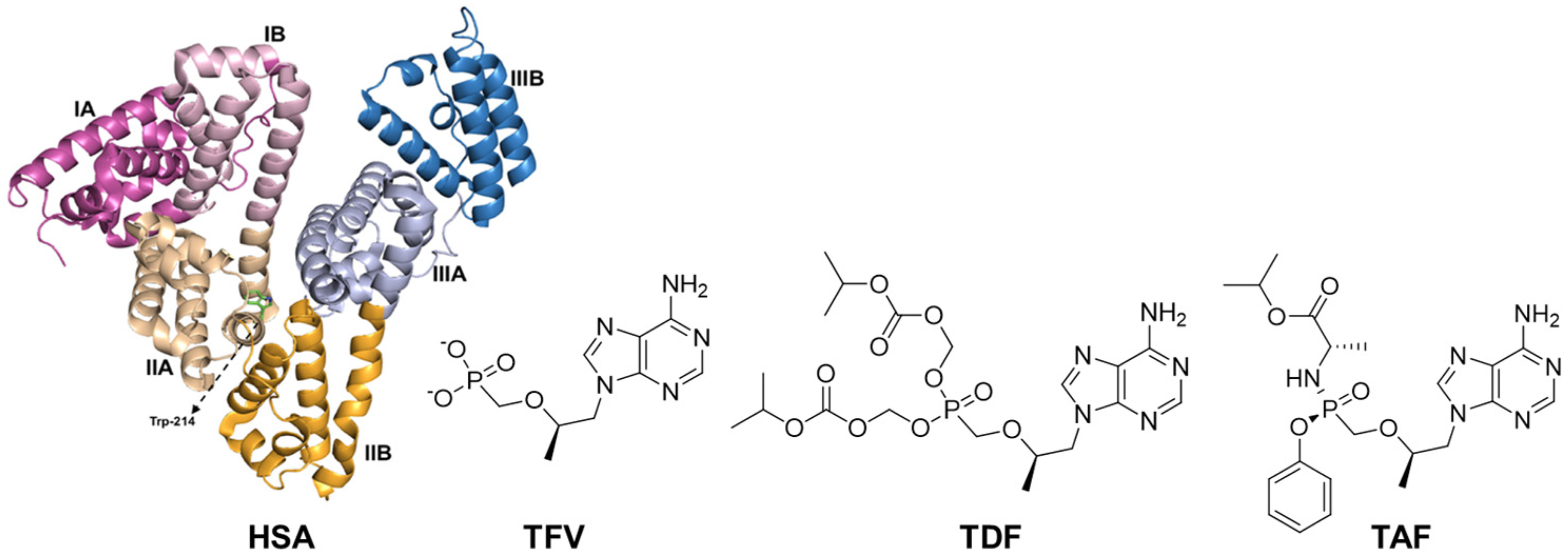
3. “Gene-Editing and RNA Interference in Treating Hepatitis B: A Review”
by Nadiia Kasianchuk, Krystyna Dobrowolska, Sofiia Harkava, Andreea Bretcan, Dorota Zarębska-Michaluk, Jerzy Jaroszewicz, Robert Flisiak and Piotr Rzymski
Viruses 2023, 15(12), 2395; https://doi.org/10.3390/v15122395
Available online: https://www.mdpi.com/1999-4915/15/12/2395
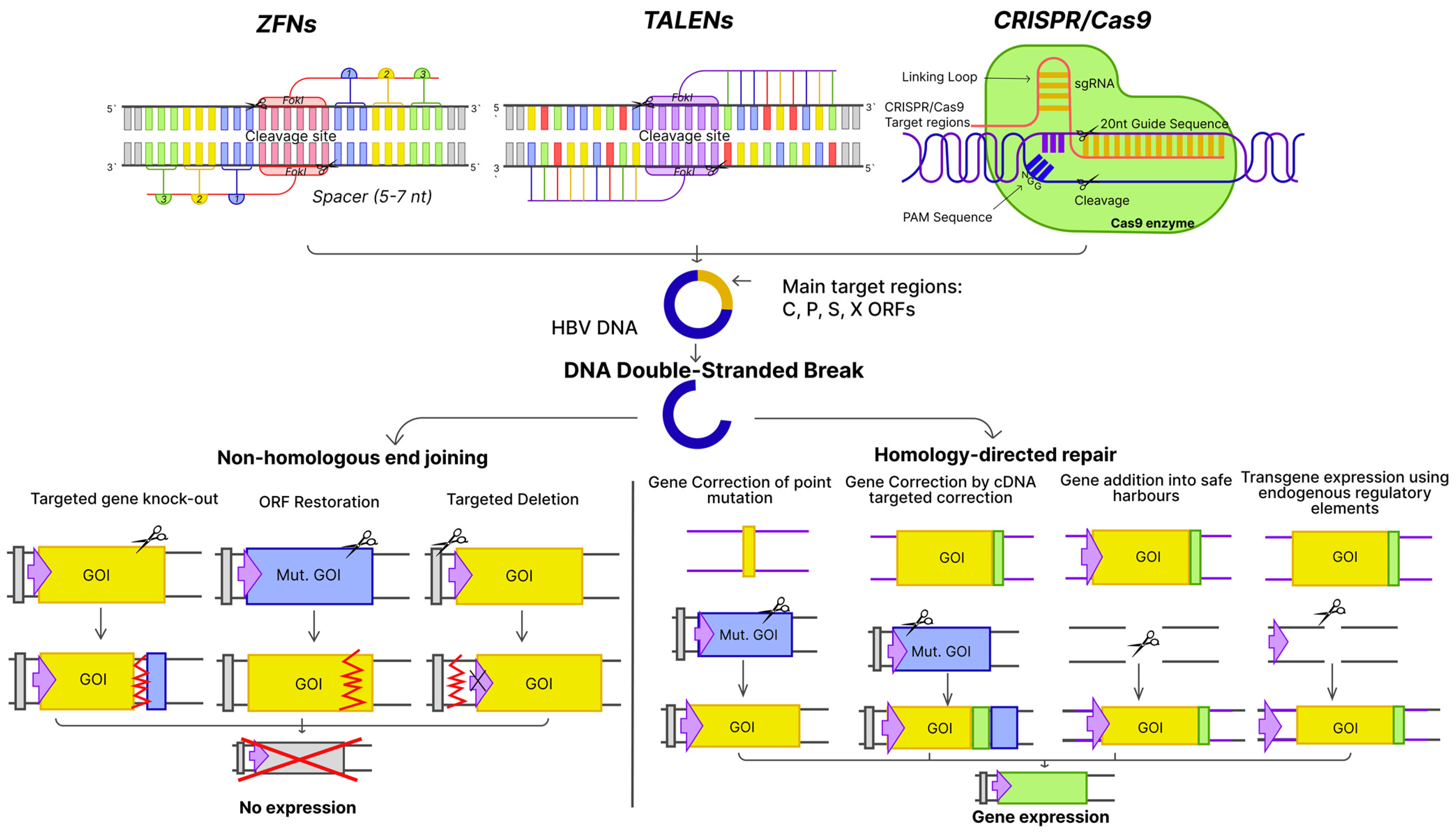
4. “G-Quadruplexes in the Viral Genome: Unlocking Targets for Therapeutic Interventions and Antiviral Strategies”
by Rajiv Pathak
Viruses 2023, 15(11), 2216; https://doi.org/10.3390/v15112216
Available online: https://www.mdpi.com/1999-4915/15/11/2216

5. “Cheminformatics Strategies Unlock Marburg Virus VP35 Inhibitors from Natural Compound Library”
by Isra M. Alsaady, Leena H. Bajrai, Thamir A. Alandijany, Hattan S. Gattan, Mai M. El-Daly, Sarah A. Altwaim, Rahaf T. Alqawas, Vivek Dhar Dwivedi and Esam I. Azhar
Viruses 2023, 15(8), 1739; https://doi.org/10.3390/v15081739
Available online: https://www.mdpi.com/1999-4915/15/8/1739
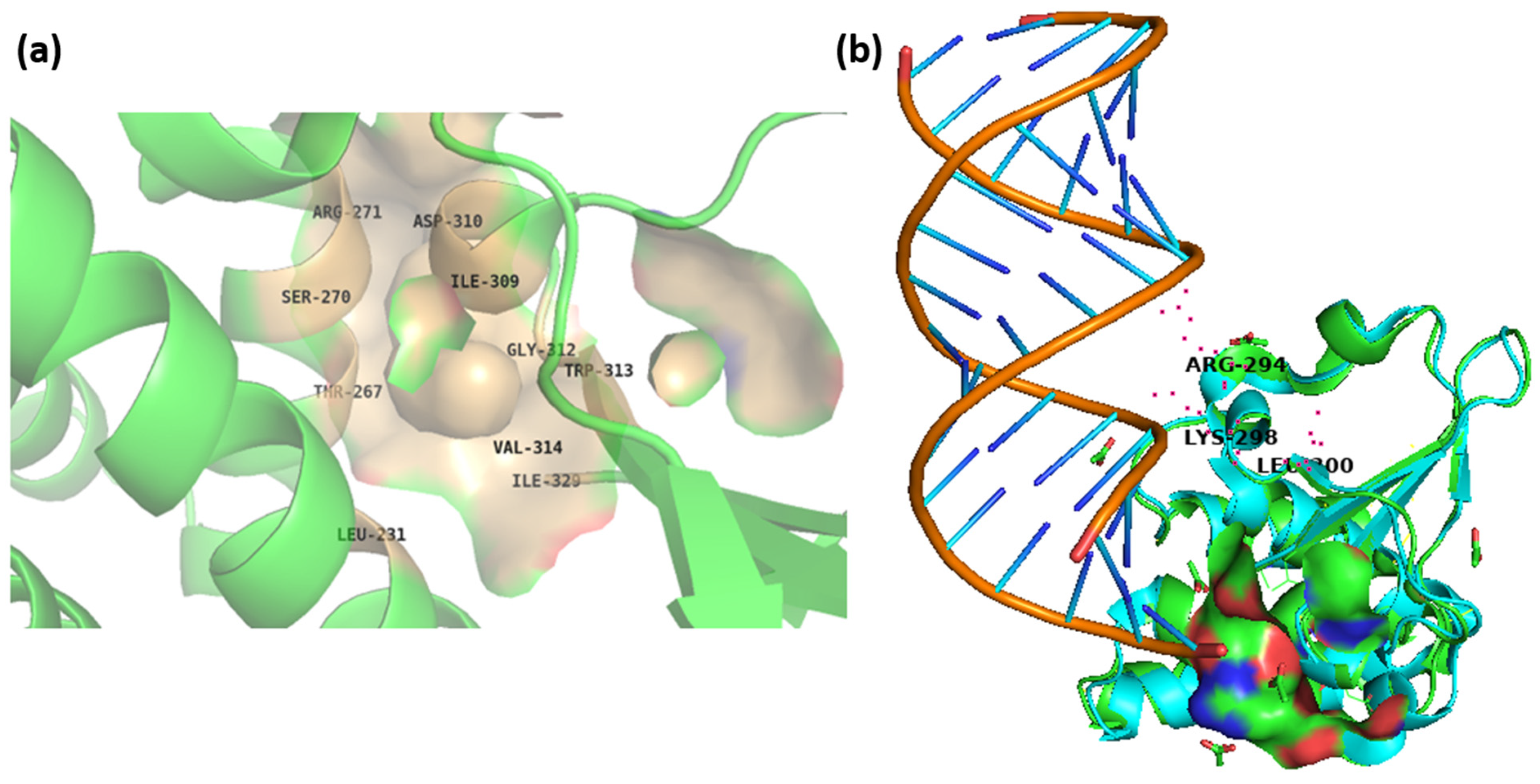
6. “Antiviral Activity of an Indole-Type Compound Derived from Natural Products, Identified by Virtual Screening by Interaction on Dengue Virus NS5 Protein”
by Leidy Lorena García-Ariza, Natalia González-Rivillas, Cindy Johanna Díaz-Aguirre, Cristian Rocha-Roa, Leonardo Padilla-Sanabria and Jhon Carlos Castaño-Osorio
Viruses 2023, 15(7), 1563; https://doi.org/10.3390/v15071563
Available online: https://www.mdpi.com/1999-4915/15/7/1563
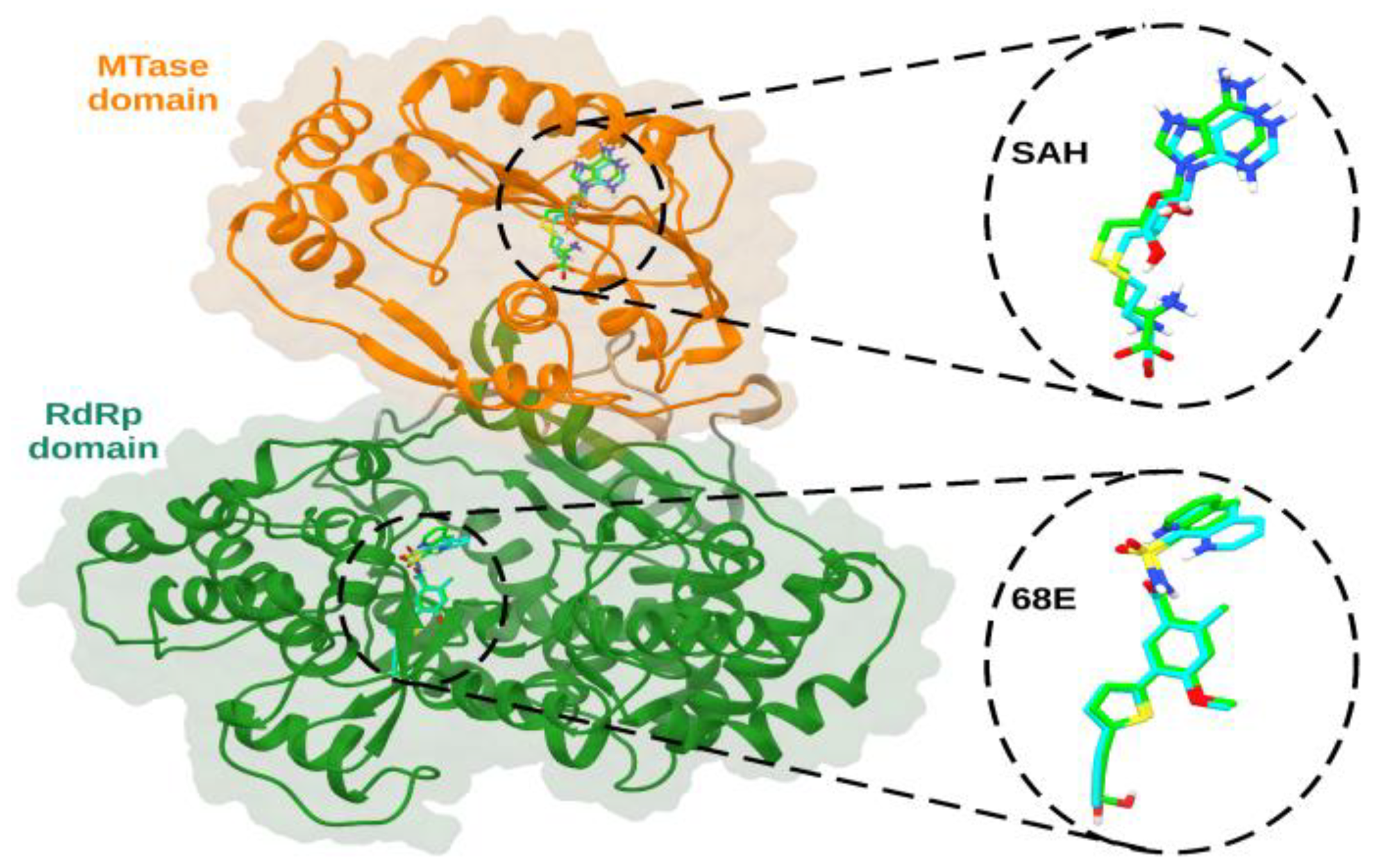
7. “Investigating the Mechanism of Action of Anti-Dengue Compounds as Potential Binders of Zika Virus RNA-Dependent RNA Polymerase”
by Thamir A. Alandijany, Mai M. El-Daly, Ahmed M. Tolah, Leena H. Bajrai, Aiah M. Khateb, Isra M. Alsaady, Sarah A. Altwaim, Amit Dubey, Vivek Dhar Dwivedi and Esam I. Azhar
Viruses 2023, 15(7), 1501; https://doi.org/10.3390/v15071501
Available online: https://www.mdpi.com/1999-4915/15/7/1501

8. “SARS-CoV-2 Spike Protein Is Capable of Inducing Cell–Cell Fusions Independent from Its Receptor ACE2 and This Activity Can Be Impaired by Furin Inhibitors or a Subset of Monoclonal Antibodies”
by Nina Reuter, Xiaohan Chen, Barbara Kropff, Antonia Sophia Peter, William J. Britt, Michael Mach, Klaus Überla and Marco Thomas
Viruses 2023, 15(7), 1500; https://doi.org/10.3390/v15071500
Available online: https://www.mdpi.com/1999-4915/15/7/1500

26 July 2024
Viruses | Selected Papers for World Hepatitis Day
World Hepatitis Day is an important day to raise awareness about hepatitis viruses and the diseases they cause. Hepatitis is a global health problem, with millions of people affected by hepatitis B and C. It is crucial to educate people about the risks of hepatitis and encourage its prevention, testing, and treatment. By promoting World Hepatitis Day, we can work towards eliminating hepatitis as a public health threat and improving the lives of those affected by these viruses. Join us in spreading the word and taking action to combat hepatitis.
“Current Trend in Antiviral Therapy for Chronic Hepatitis B”
by Rong-Nan Chien and Yun-Fan Liaw
Viruses 2022, 14(2), 434; https://doi.org/10.3390/v14020434
Available online: https://www.mdpi.com/1999-4915/14/2/434

“Hepatitis B Virus-Associated Hepatocellular Carcinoma”
by Giacomo Emanuele Maria Rizzo, Giuseppe Cabibbo and Antonio Craxì
Viruses 2022, 14(5), 986; https://doi.org/10.3390/v14050986
Available online: https://www.mdpi.com/1999-4915/14/5/986
“HBsAg Loss as a Treatment Endpoint for Chronic HBV Infection: HBV Cure”
by Maryam Moini and Scott Fung
Viruses 2022, 14(4), 657; https://doi.org/10.3390/v14040657
Available online: https://www.mdpi.com/1999-4915/14/4/657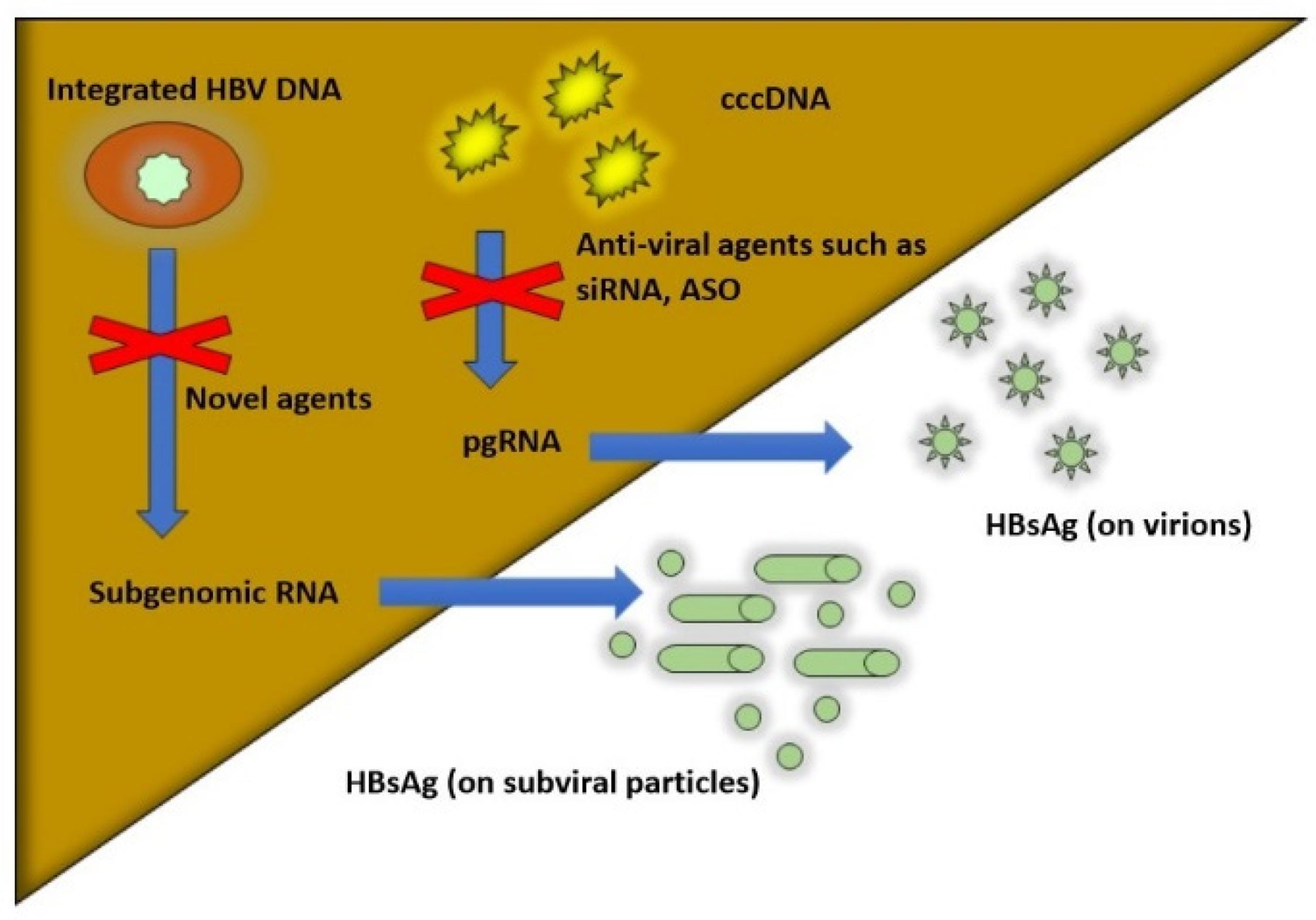
“Innate Immunity, Inflammation, and Intervention in HBV Infection”
by Ge Yang, Pin Wan, Yaru Zhang, Qiaoru Tan, Muhammad Suhaib Qudus, Zhaoyang Yue, Wei Luo, Wen Zhang, Jianhua Ouyang, Yongkui Li and Jianguo Wu
Viruses 2022, 14(10), 2275; https://doi.org/10.3390/v14102275
Available online: https://www.mdpi.com/1999-4915/14/10/2275
“A Review of HDV Infection”
by Gian Paolo Caviglia, Alessia Ciancio and Mario Rizzetto
Viruses 2022, 14(8), 1749; https://doi.org/10.3390/v14081749
Available online: https://www.mdpi.com/1999-4915/14/8/1749
“Chirohepevirus from Bats: Insights into Hepatitis E Virus Diversity and Evolution”
by Bo Wang and Xing-Lou Yang
Viruses 2022, 14(5), 905; https://doi.org/10.3390/v14050905
Available online: https://www.mdpi.com/1999-4915/14/5/905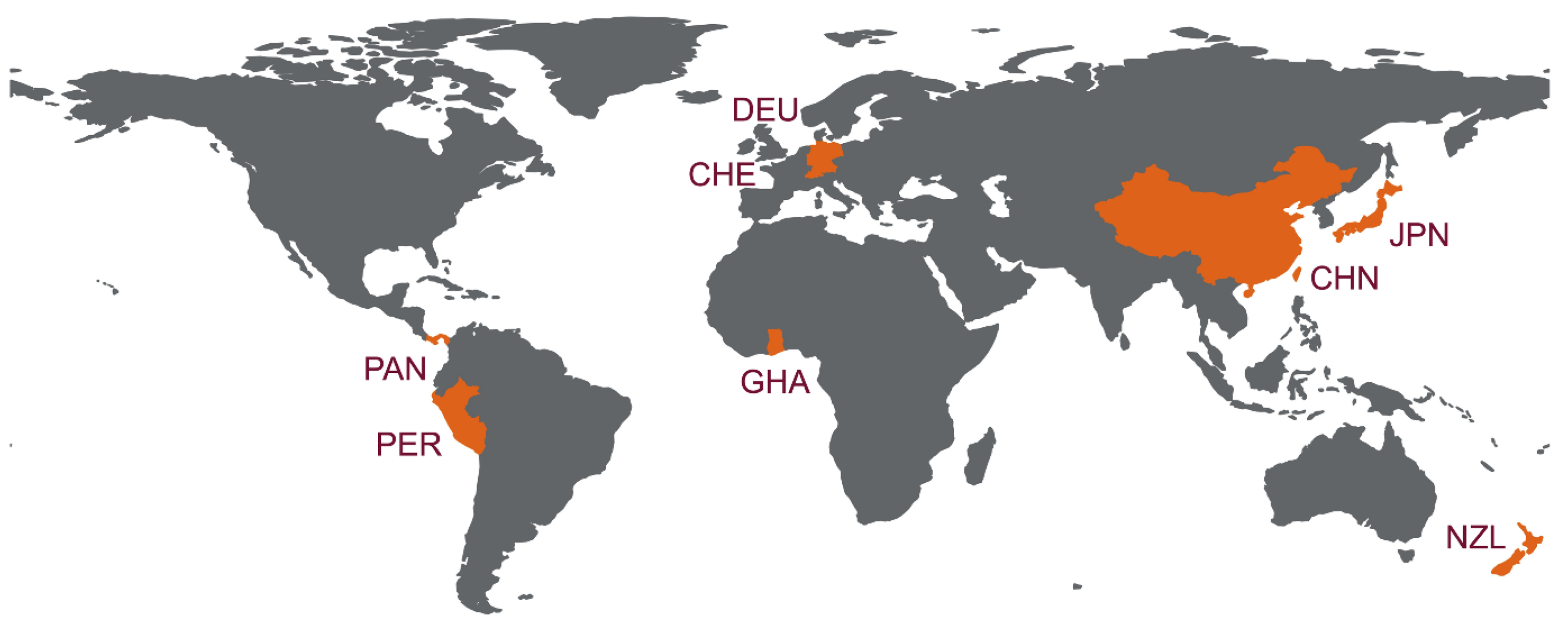
“Direct-Acting Antiviral Agents for Hepatitis C Virus Infection—From Drug Discovery to Successful Implementation in Clinical Practice”
by Christopher Dietz and Benjamin Maasoumy
Viruses 2022, 14(6), 1325; https://doi.org/10.3390/v14061325
Available online: https://www.mdpi.com/1999-4915/14/6/1325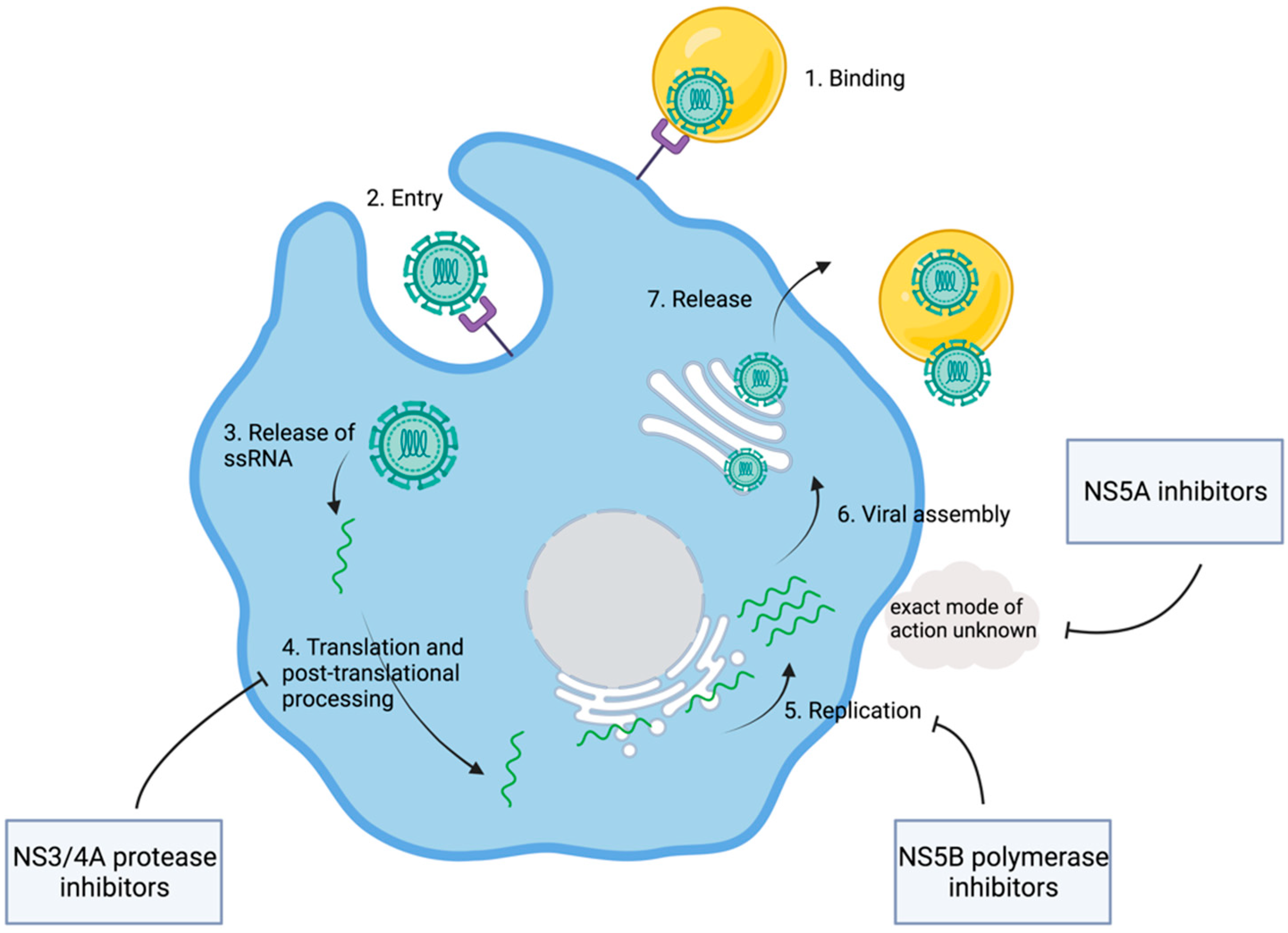
“Experimental Cross-Species Transmission of Rat Hepatitis E Virus to Rhesus and Cynomolgus Monkeys”
by Fengmei Yang, Yanyan Li, Yongjie Li, Weihua Jin, Suqin Duan, Hongjie Xu, Yuan Zhao, Zhanlong He, Yasushi Ami, Yuriko Suzaki et al.
Viruses 2022, 14(2), 293; https://doi.org/10.3390/v14020293
Available online: https://www.mdpi.com/1999-4915/14/2/293

“Hepatitis B Vaccination: A Historical Overview with a Focus on the Italian Achievements”
by Luisa Romano and Alessandro R. Zanetti
Viruses 2022, 14(7), 1515; https://doi.org/10.3390/v14071515
Available online: https://www.mdpi.com/1999-4915/14/7/1515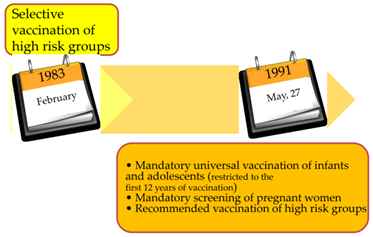
“Gene Editing Technologies to Target HBV cccDNA”
by Maria Guadalupe Martinez, Elena Smekalova, Emmanuel Combe, Francine Gregoire, Fabien Zoulim and Barbara Testoni
Viruses 2022, 14(12), 2654; https://doi.org/10.3390/v14122654
Available online: https://www.mdpi.com/1999-4915/14/12/2654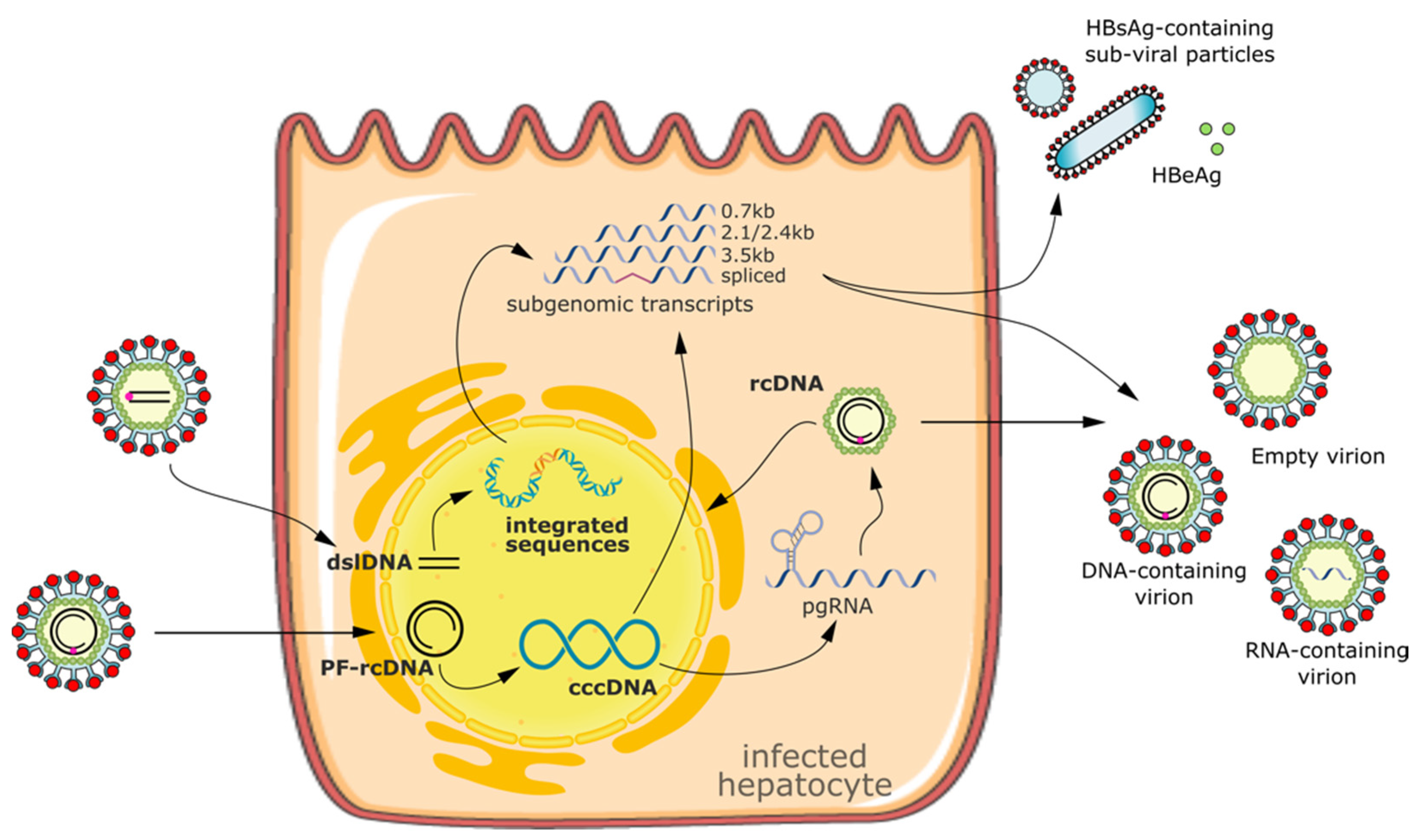
19 July 2024
Viruses | Selected Papers in the Section “Coronaviruses”
by Frederique Laprise, Ariana Arduini, Mathew Duguay, Qinghua Pan and Chen Liang
Viruses 2024, 16(7), 1008; https://doi.org/10.3390/v16071008
Available online: https://www.mdpi.com/1999-4915/16/7/1008
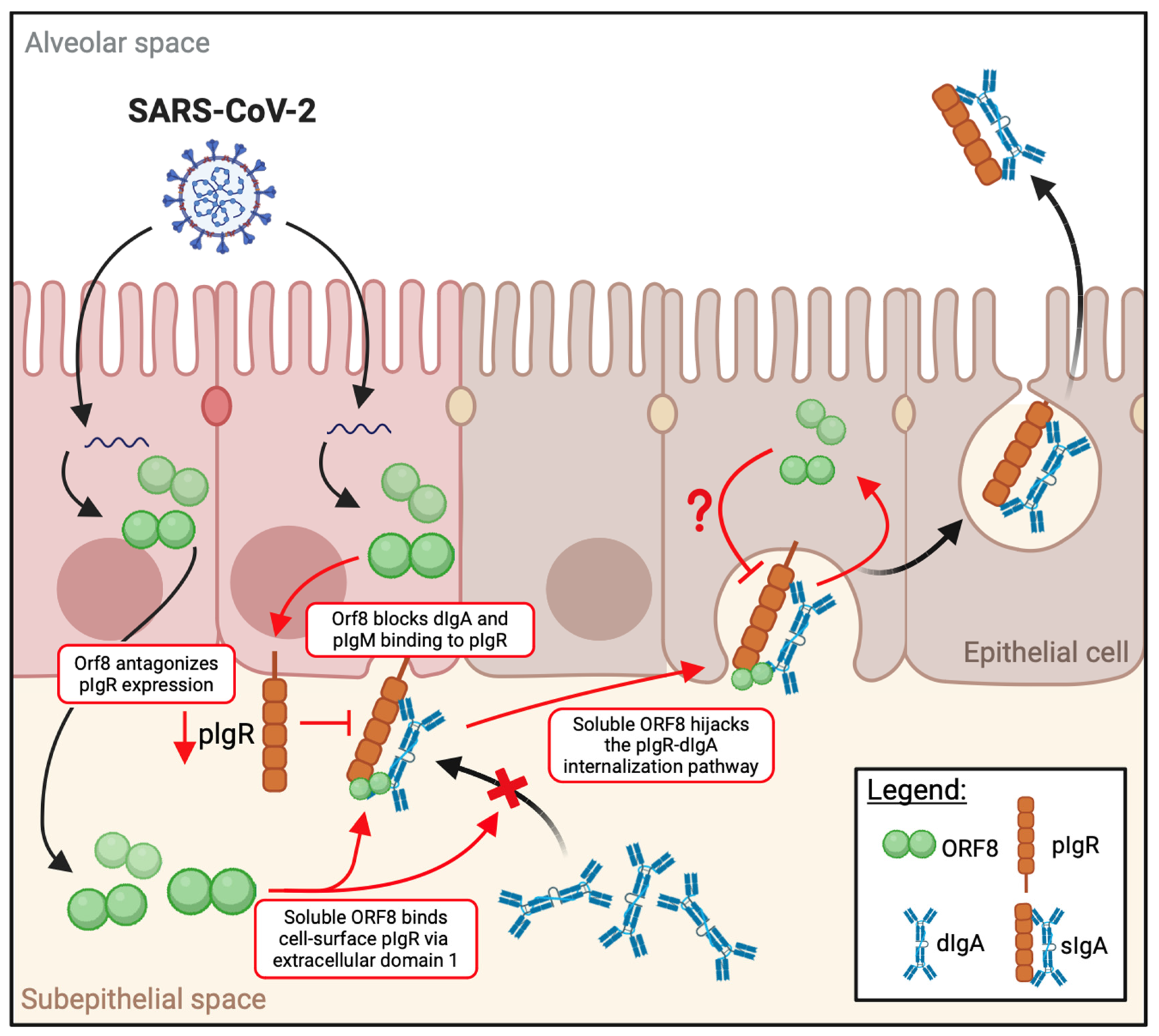
2. “Mutations in the Receptor Binding Domain of Severe Acute Respiratory Coronavirus-2 Omicron Variant Spike Protein Significantly Stabilizes Its Conformation”
by Michael H. Peters
Viruses 2024, 16(6), 912; https://doi.org/10.3390/v16060912
Available online: https://www.mdpi.com/1999-4915/16/6/912
3. “SARS-CoV-2 and Influenza Co-Infection: Fair Competition or Sinister Combination?”
by Narasaraju Teluguakula, Vincent T. K. Chow, Mirazkar Dasharatharao Pandareesh, Venkatesha Dasegowda, Vidyasagar Kurrapotula, Shivaramu M. Gopegowda and Marko Radic
Viruses 2024, 16(5), 793; https://doi.org/10.3390/v16050793
Available online: https://www.mdpi.com/1999-4915/16/5/793

4. “Mechanisms by Which SARS-CoV-2 Invades and Damages the Central Nervous System: Apart from the Immune Response and Inflammatory Storm, What Else Do We Know?”
by Zihan Sun, Chunying Shi and Lixin Jin
Viruses 2024, 16(5), 663; https://doi.org/10.3390/v16050663
Available online: https://www.mdpi.com/1999-4915/16/5/663

5. “Visualization of Early RNA Replication Kinetics of SARS-CoV-2 by Using Single Molecule RNA-FISH Combined with Immunofluorescence”
by Rajiv Pathak, Carolina Eliscovich, Ignacio Men, Anastasija Cupic, Magdalena Rutkowska, Kartik Chandran, Rohit K. Jangra, Adolfo García-Sastre, Robert H. Singer and Ganjam V. Kalpana
Viruses 2024, 16(2), 262; https://doi.org/10.3390/v16020262
Available online: https://www.mdpi.com/1999-4915/16/2/262

6. “SARS-CoV-2 ORF8 as a Modulator of Cytokine Induction: Evidence and Search for Molecular Mechanisms”
by Marília Inês Móvio, Giovana Waner Carneiro de Almeida, Isabella das Graças Lopes Martines, Gilmara Barros de Lima, Sergio Daishi Sasaki, Alexandre Hiroaki Kihara, Emma Poole, Michael Nevels and Maria Cristina Carlan da Silva
Viruses 2024, 16(1), 161; https://doi.org/10.3390/v16010161
Available online: https://www.mdpi.com/1999-4915/16/1/161

7. “Enhancement of SARS-CoV-2 Infection via Crosslinking of Adjacent Spike Proteins by N-Terminal Domain-Targeting Antibodies”
by Tina Lusiany, Tohru Terada, Jun-ichi Kishikawa, Mika Hirose, David Virya Chen, Fuminori Sugihara, Hendra Saputra Ismanto, Floris J. van Eerden, Songling Li, Takayuki Kato et al.
Viruses 2023, 15(12), 2421; https://doi.org/10.3390/v15122421
Available online: https://www.mdpi.com/1999-4915/15/12/2421
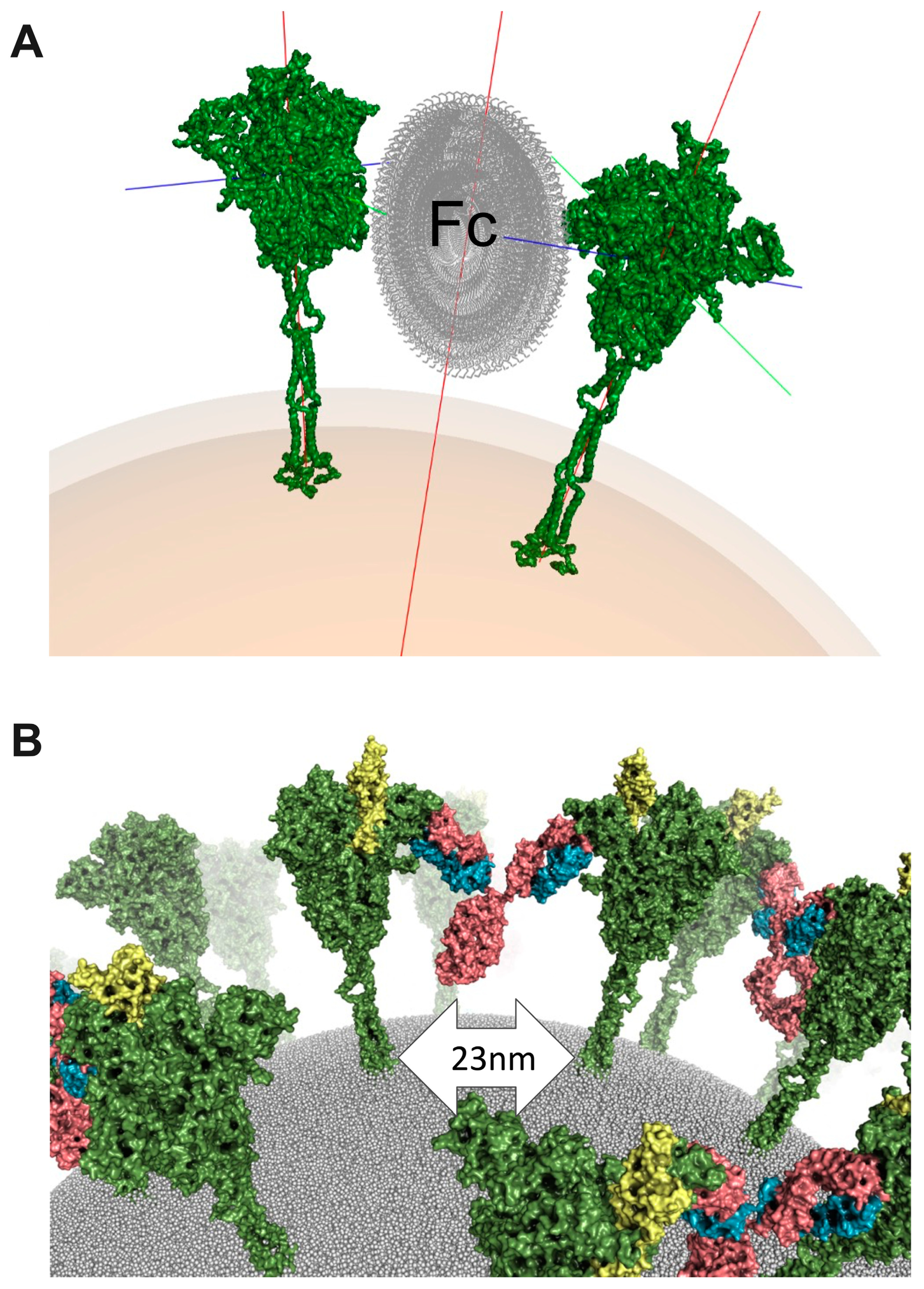
by Xiao Yuan, Xiaoman Zhang, Huan Wang, Xiang Mao, Yingjie Sun, Lei Tan, Cuiping Song, Xusheng Qiu, Chan Ding and Ying Liao
Viruses 2023, 15(10), 2001; https://doi.org/10.3390/v15102001
Available online: https://www.mdpi.com/1999-4915/15/10/2001
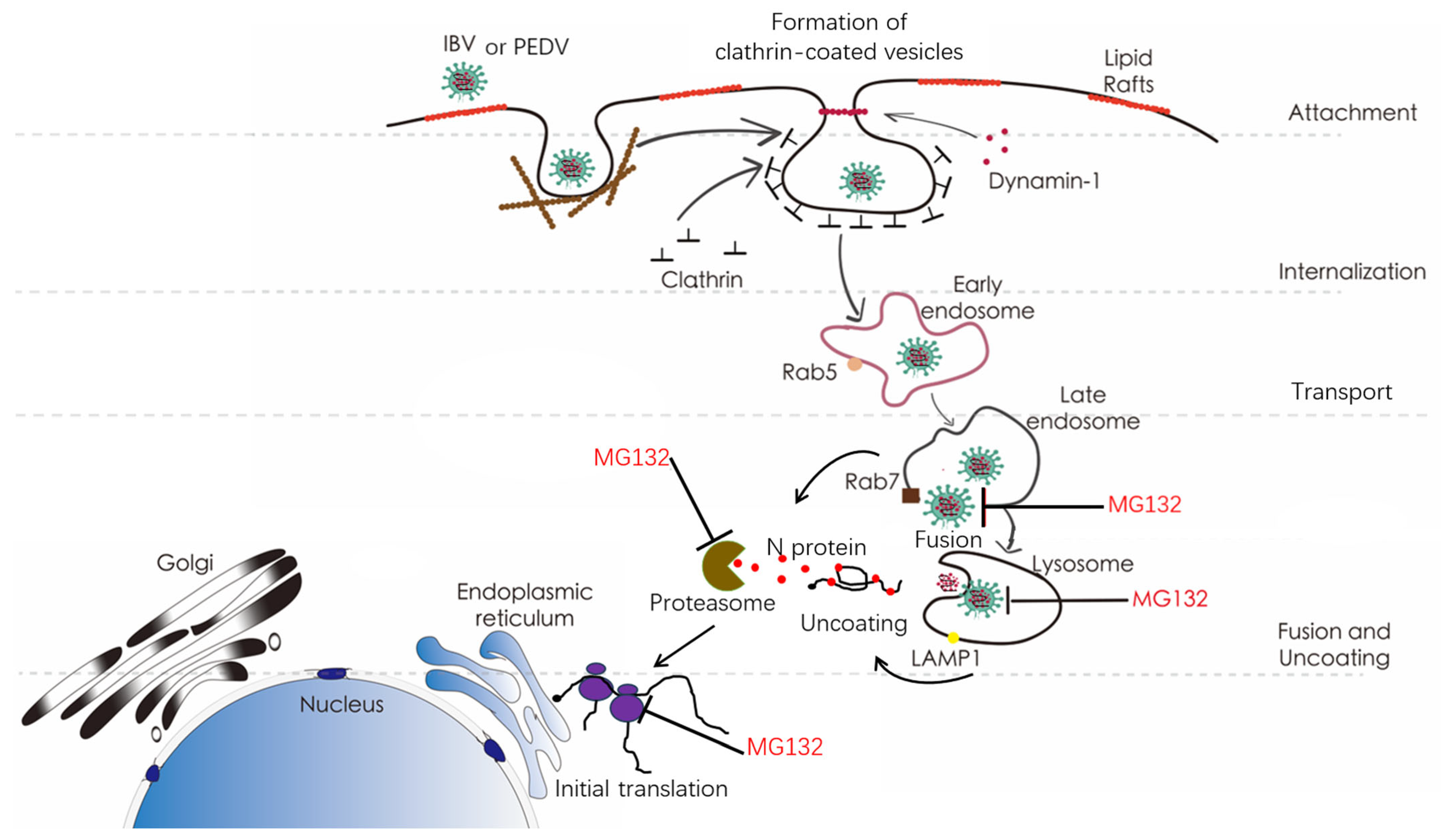
10 July 2024
MDPI's Newly Launched Journals in June 2024
 Five new journals covering multiple subjects have launched their inaugural issue in June 2024. We are excited to be able to share with you the newest research rooted in the value of open access.
Five new journals covering multiple subjects have launched their inaugural issue in June 2024. We are excited to be able to share with you the newest research rooted in the value of open access.
We would like to express our deepest appreciation to all the Editorial Board Members and each journal will ensure its high-quality output using excellent editorial and rigorous peer review processes, to ensure that the articles achieve high impact and visibility.
Please feel free to browse and discover more about the new journals below.
|
Journal |
Founding Editor-in-Chief |
Journal Topics (Selected) |
 |
Prof. Dr. Marco Ranucci, IRCCS Policlinico San Donato, Italy |
anaesthetic medications; blood and fluid management; pain management; critical care; critical illness | view journal scope | submit an article |
 |
Dr. Giovanni E. Cacciamani, University of Southern California, USA |
surgical/procedural complications; complications; perioperative adverse events; postoperative adverse events | view journal scope | submit an article |
 |
Prof. Dr. Gassan Hodaifa, Universidad Pablo de Olavide, Spain |
laboratory management; laboratory safety; protective equipment; laboratory problems and challenges; laboratory Innovation | view journal scope | submit an article |
 |
Prof. Dr. Jan S. Suchodolski, Texas A&M University, USA |
companion animals health and disease; veterinary care and nutrition; genetics and genomics; behavior and welfare; human-animal relations | view journal scope | submit an article |
 |
Prof. Dr. Pierfrancesco De Paola, University of Naples Federico II, Italy |
real estate appraisal; economic and financial valuation of real estate projects; sustainable real estate; housing and urban economics | view journal scope | submit an article |
We wish to thank everyone who has supported the development of open access publishing. You are welcome to send an application here, or contact the New Journal Committee (newjournal-committee@mdpi.com) if you would like to create more new journals.
8 July 2024
Viruses | Selected Papers in the Section “Bacterial Viruses”
1. “Partial Atomic Model of the Tailed Lactococcal Phage TP901-1 as Predicted by AlphaFold2: Revelations and Limitations”
by Jennifer Mahony, Adeline Goulet, Douwe van Sinderen and Christian Cambillau
Viruses 2023, 15(12), 2440; https://doi.org/10.3390/v15122440
Available online: https://www.mdpi.com/1999-4915/15/12/2440 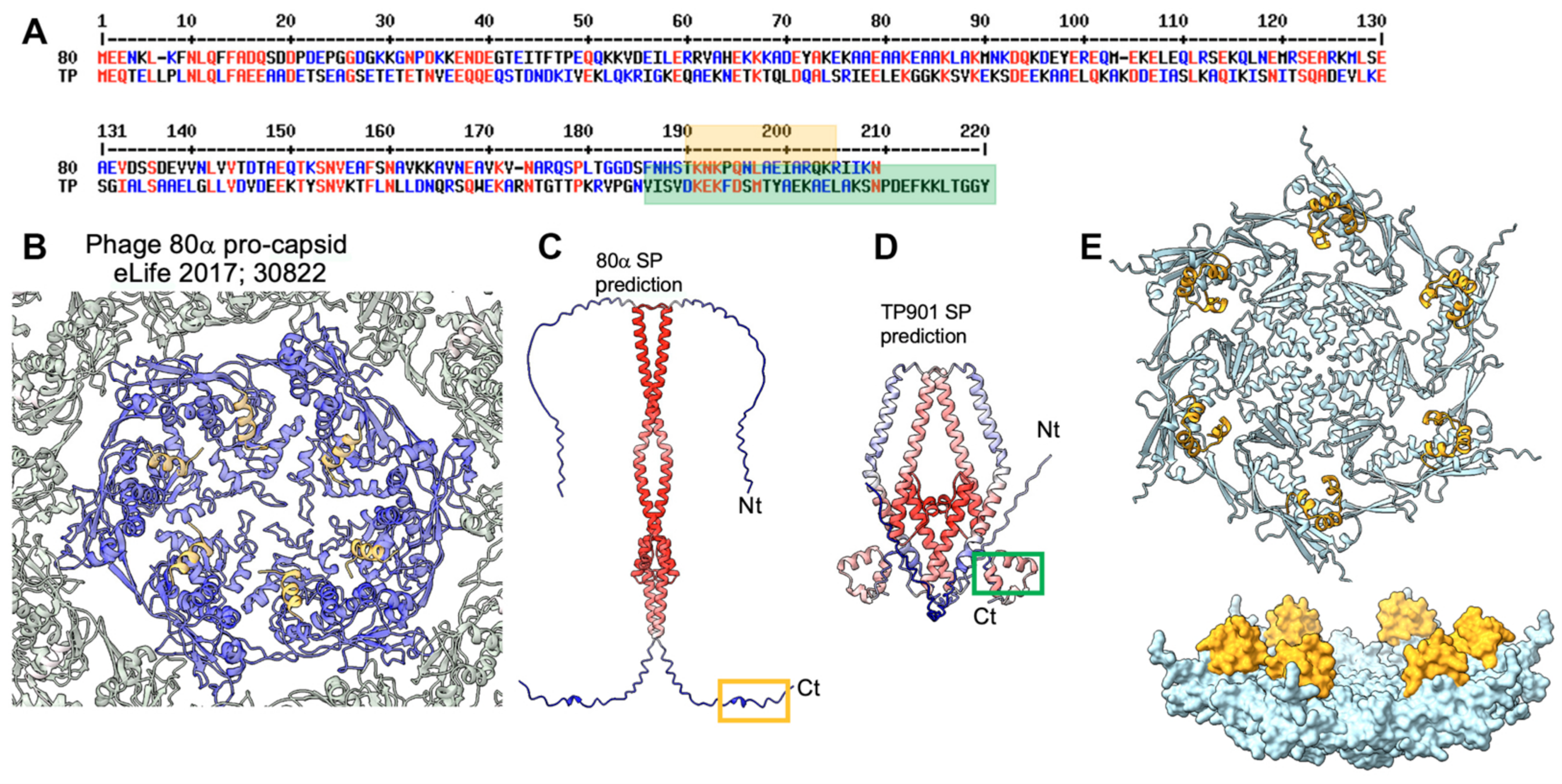
2. “Structural Studies of Bacteriophage Φ6 and its Transformations During its Life Cycle”
by J. Bernard Heymann
Viruses 2023, 15(12), 2404; https://doi.org/10.3390/v15122404
Available online: https://www.mdpi.com/1999-4915/15/12/2404 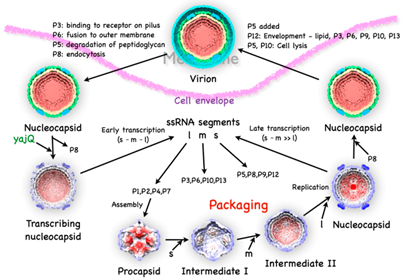
3. “Phage vs. Phage: Direct Selections of Sandwich Binding Pairs”
by Emily C. Sanders, Alicia M. Santos, Eugene K. Nguyen, Aidan A. Gelston, Sudipta Majumdar and Gregory A. Weiss
Viruses 2023, 15(3), 807; https://doi.org/10.3390/v15030807
Available online: https://www.mdpi.com/1999-4915/15/3/807
4. “Four Novel Caudoviricetes Bacteriophages Isolated from Baltic Sea Water Infect Colonizers of Aurelia aurita”
by Melissa Stante, Nancy Weiland-Bräuer, Urska Repnik, Almut Werner, Marc Bramkamp, Cynthia M. Chibani and Ruth A. Schmitz
Viruses 2023, 15(7), 1525; https://doi.org/10.3390/v15071525
Available online: https://www.mdpi.com/1999-4915/15/7/1525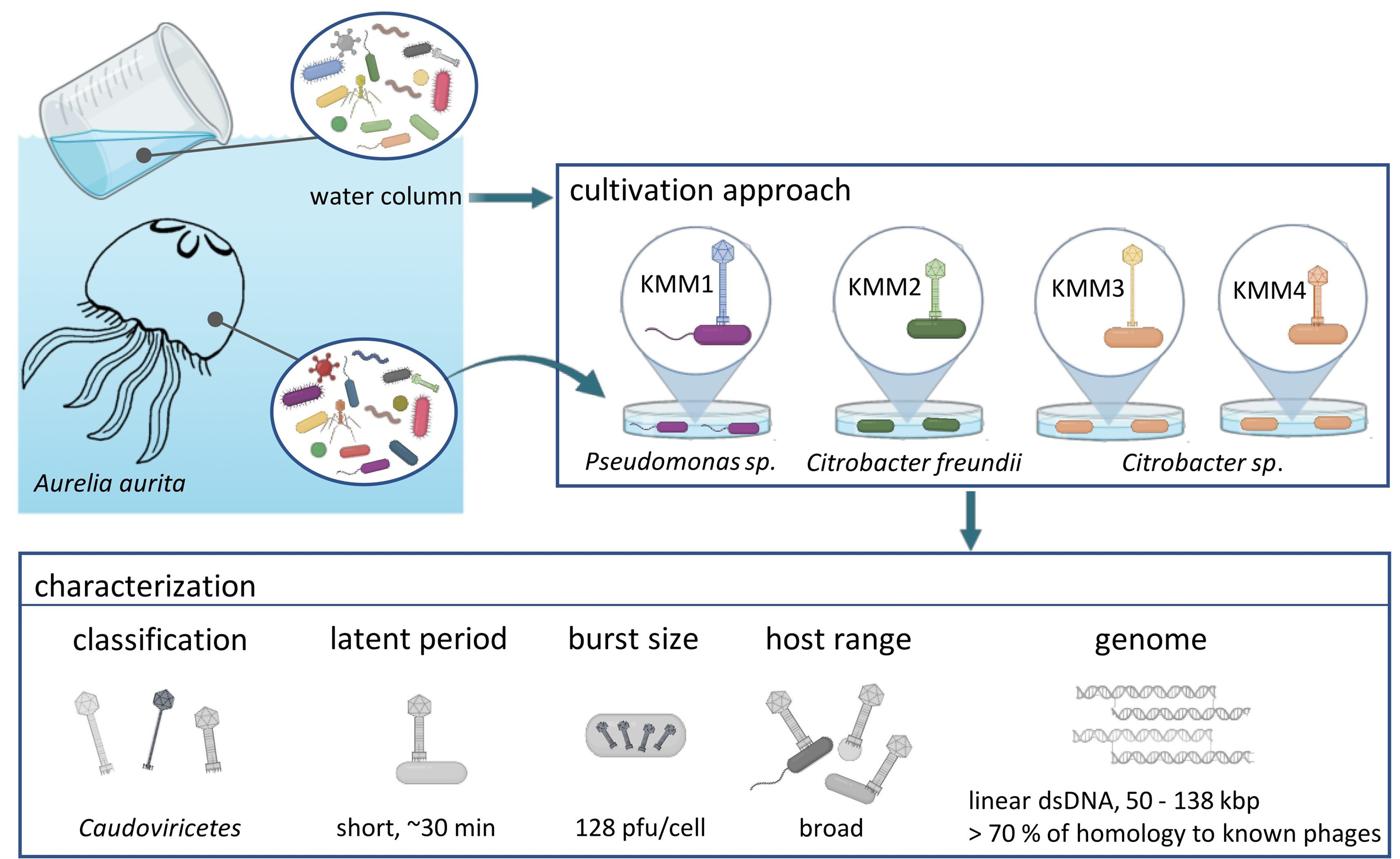
5. “Structure and Function of Hoc—A Novel Environment Sensing Device Encoded by T4 and Other Bacteriophages”
by Andrei Fokine, Mohammad Zahidul Islam, Qianglin Fang, Zhenguo Chen, Lei Sun and Venigalla B. Rao
Viruses 2023, 15(7), 1517; https://doi.org/10.3390/v15071517
Available online: https://www.mdpi.com/1999-4915/15/7/1517 
6. “Inference of the Life Cycle of Environmental Phages from Genomic Signature Distances to Their Hosts”
by Vicente Arnau, Wladimiro Díaz-Villanueva, Jorge Mifsut Benet, Paula Villasante, Beatriz Beamud, Paula Mompó, Rafael Sanjuan, Fernando González-Candelas, Pilar Domingo-Calap and Mária Džunková
Viruses 2023, 15(5), 1196; https://doi.org/10.3390/v15051196
Available online: https://www.mdpi.com/1999-4915/15/5/1196 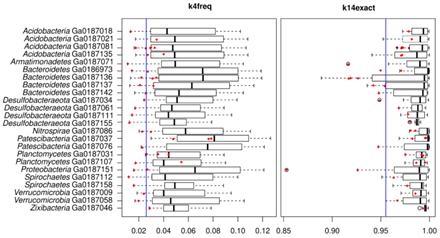
7. “Recent Advances in Structural Studies of Single-Stranded RNA Bacteriophages”
by Jirapat Thongchol, Zachary Lill, Zachary Hoover and Junjie Zhang
Viruses 2023, 15(10), 1985; https://doi.org/10.3390/v15101985
Available online: https://www.mdpi.com/1999-4915/15/10/1985
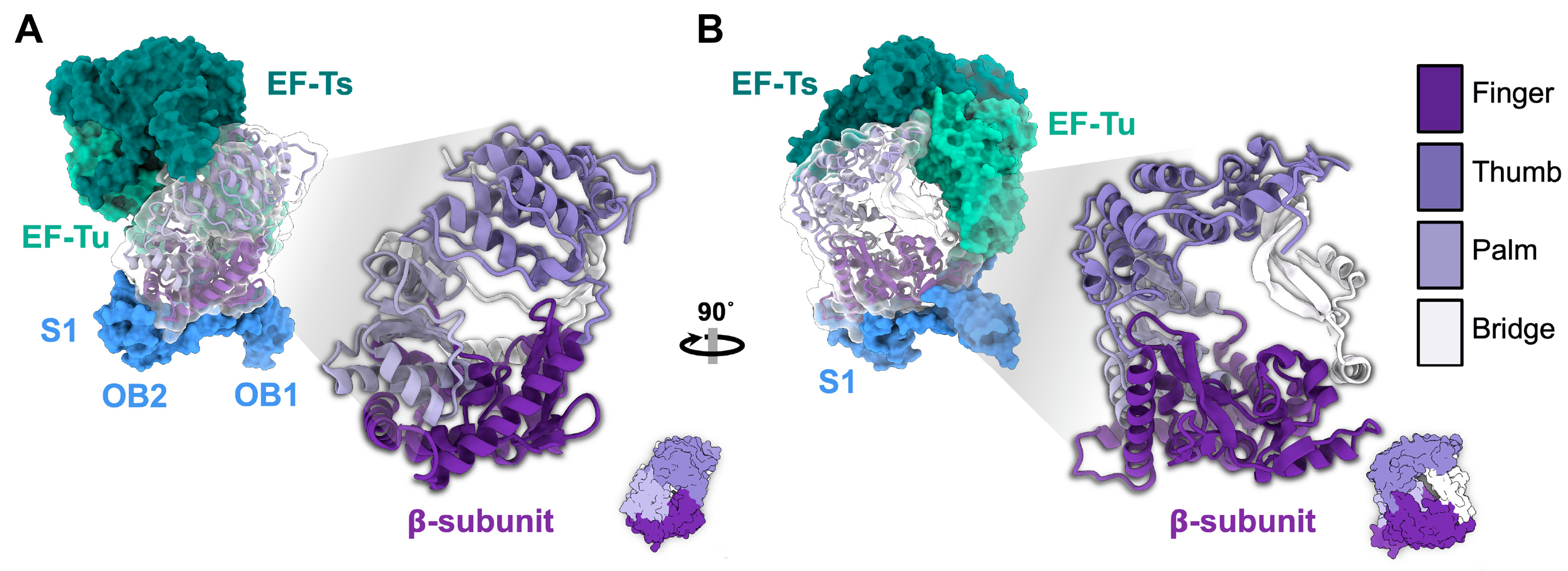
8. “The Novel Yersinia enterocolitica Telomere Phage vB_YenS_P840 Is Closely Related to PY54, but Reveals Some Striking Differences”
by Julia Anabell Bräuer, Jens Andre Hammerl, Sabrin El-Mustapha, Julius Fuhrmann, Andrea Barac and Stefan Hertwig
Viruses 2023, 15(10), 2019; https://doi.org/10.3390/v15102019
Available online: https://www.mdpi.com/1999-4915/15/10/2019 
9. “Characterisation of the Novel Filamentous Phage PMBT54 Infecting the Milk Spoilage Bacteria Pseudomonas carnis and Pseudomonas lactis”
by Frank Hille
Viruses 2023, 15(9), 1781; https://doi.org/10.3390/v15091781
Available online: https://www.mdpi.com/1999-4915/15/9/1781 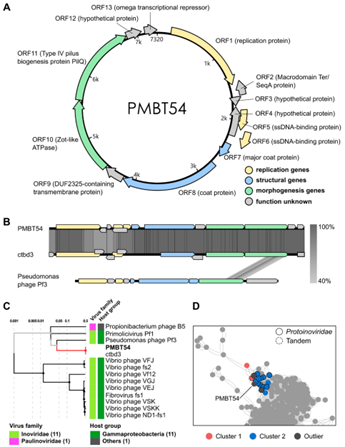
by Augustin Ntemafack, Aristide Dzelamonyuy, Godwin Nchinda and Alain Bopda Waffo
Viruses 2023, 15(7), 1414; https://doi.org/10.3390/v15071414
Available online: https://www.mdpi.com/1999-4915/15/7/1414
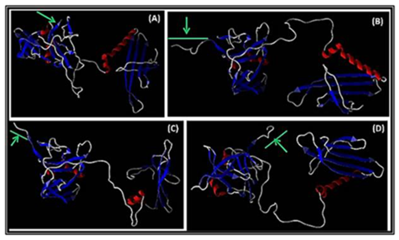
5 July 2024
Viruses | Selected Papers in the Section “Insect Viruses”
1. “A Perspective on Current Flavivirus Vaccine Development: A Brief Review”
by Sudip Kumar Dutta and Thomas Langenburg
Viruses 2023, 15(4), 860; https://doi.org/10.3390/v15040860
Available online: https://www.mdpi.com/1999-4915/15/4/860
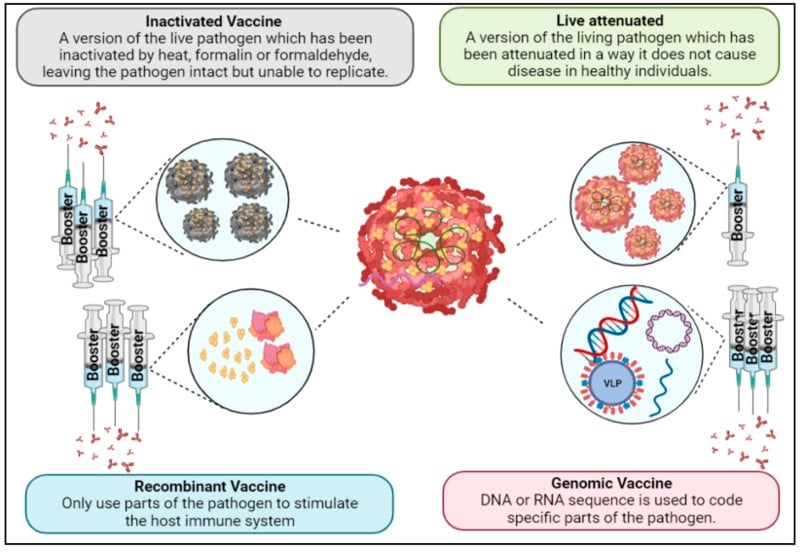
2. “A Systematic Review of Mathematical Models of Dengue Transmission and Vector Control: 2010–2020”
by Samson T. Ogunlade, Michael T. Meehan, Adeshina I. Adekunle and Emma S. McBryde
Viruses 2023, 15(1), 254; https://doi.org/10.3390/v15010254
Available online: https://www.mdpi.com/1999-4915/15/1/254
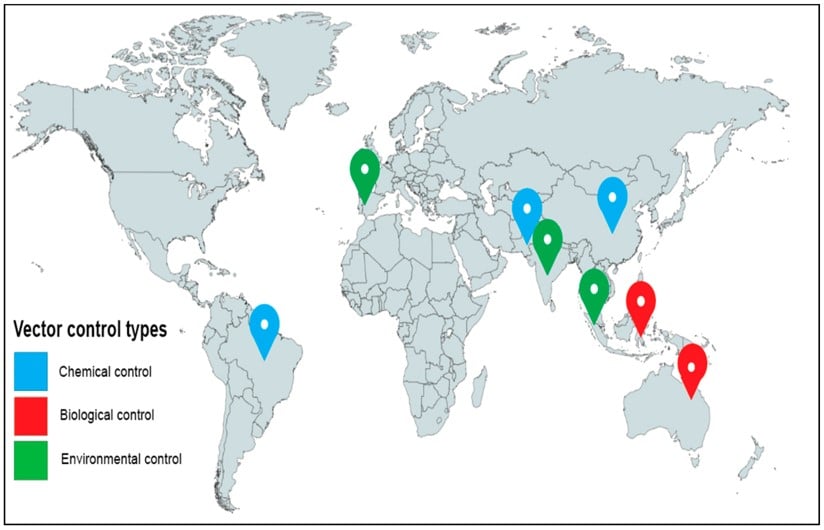
3. “Culex Y Virus: A Native Virus of Culex Species Characterized In Vivo”
by Mareike Heinig-Hartberger, Fanny Hellhammer, David D. J. A. Zöller, Susann Dornbusch, Stella Bergmann, Katerina Vocadlova, Sandra Junglen, Michael Stern, Kwang-Zin Lee and Stefanie C. Becker
Viruses 2023, 15(1), 235; https://doi.org/10.3390/v15010235
Available online: https://www.mdpi.com/1999-4915/15/1/235
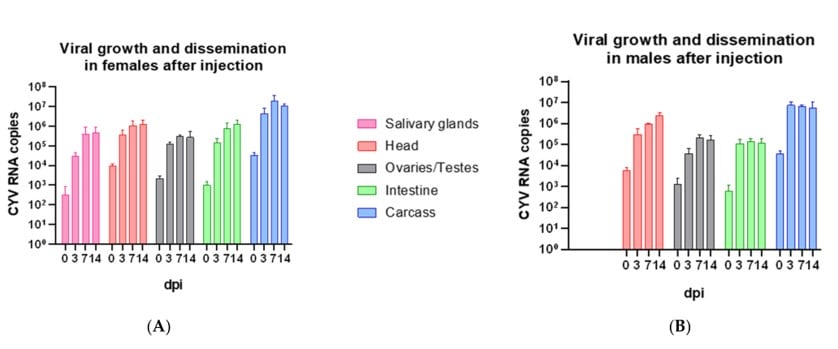
4. “Microbiome as an Influence on Arbovirus Vector Competence: A Review”
by Qesya Rodrigues Ferreira, Fabian Fellipe Bueno Lemos, Matheus Nascimento Moura, Jéssica Oliveira de Souza Nascimento, Ana Flávia Novaes, Isadora Souza Barcelos, Larissa Alves Fernandes, Liliany Souza de Brito Amaral, Fernanda Khouri Barreto and Fabrício Freire de Melo
Viruses 2023, 15(3), 779; https://doi.org/10.3390/v15030779
Available online: https://www.mdpi.com/1999-4915/15/3/779
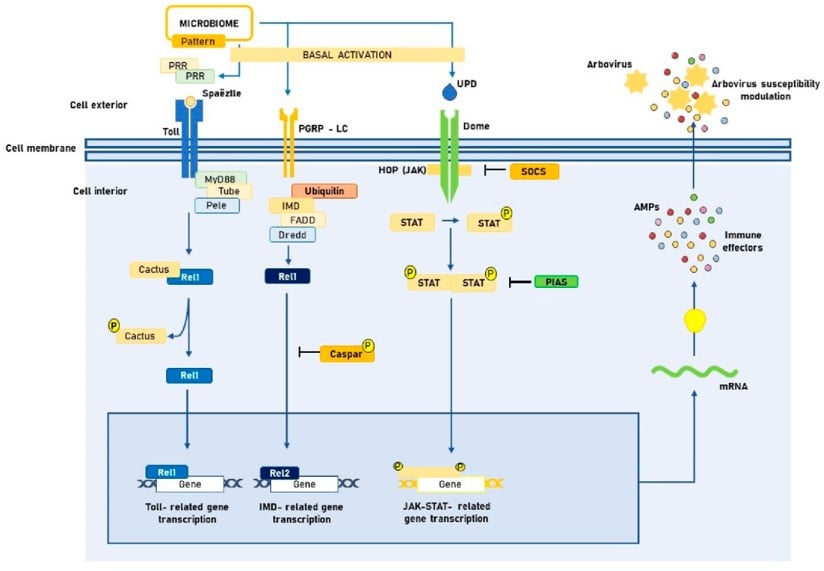
5. “Co-Circulation of Dengue Virus Serotypes 1, 2, and 3 During the 2022 Dengue Outbreak in Nepal: A Cross-Sectional Study”
by Sandesh Rimal, Sabin Shrestha, Kishor Pandey, Thanh Vu Nguyen, Parmananda Bhandari, Yogendra Shah, Dhiraj Acharya, Nabaraj Adhikari, Komal Raj Rijal, Prakash Ghimire et al.
Viruses 2023, 15(2), 507; https://doi.org/10.3390/v15020507
Available online: https://www.mdpi.com/1999-4915/15/2/507
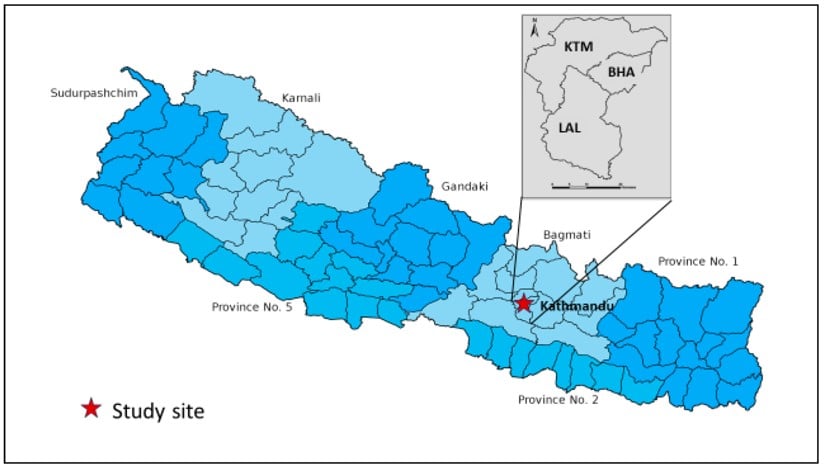
6. “The Viromes of Six Ecosystem Service Provider Parasitoid Wasps”
by Gabriela B. Caldas-Garcia, Vinícius Castro Santos, Paula Luize Camargos Fonseca, João Paulo Pereira de Almeida, Marco Antônio Costa and Eric Roberto Guimarães Rocha Aguiar
Viruses 2023, 15(12), 2448; https://doi.org/10.3390/v15122448
Available online: https://www.mdpi.com/1999-4915/15/12/2448
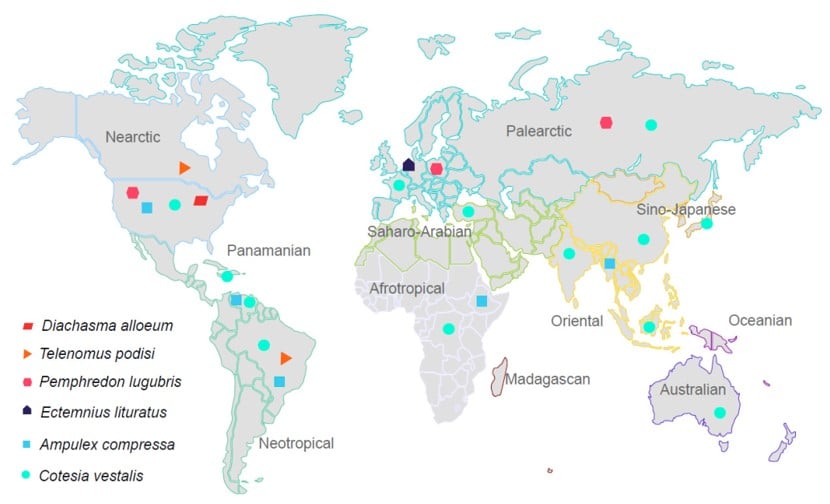
7. “Baculovirus Interactions in Biological Control: A Comprehensive Historical and Technical Analysis”
by María Leticia Ferrelli and Ricardo Salvador
Viruses 2023, 15(9), 1838; https://doi.org/10.3390/v15091838
Available online: https://www.mdpi.com/1999-4915/15/9/1838
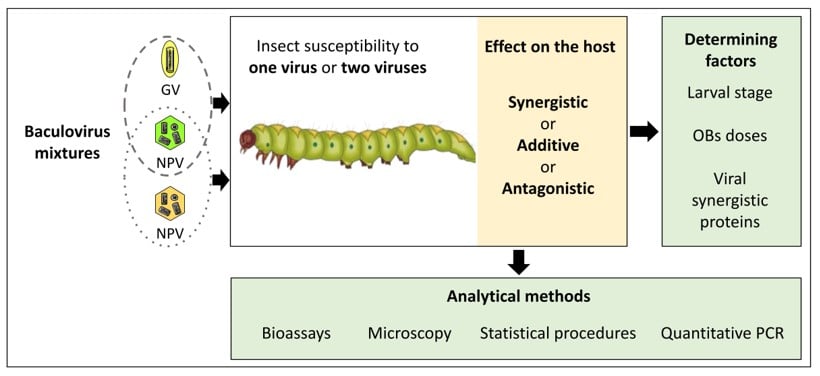
8. “Advances in the Development of Small Molecule Antivirals Against Equine Encephalitic Viruses”
by Yahya Al Naggar, Hassan Shafiey and Robert J. Paxton
Viruses 2023, 15(2), 413; https://doi.org/10.3390/v15020413
Available Online: https://www.mdpi.com/1999-4915/15/2/413
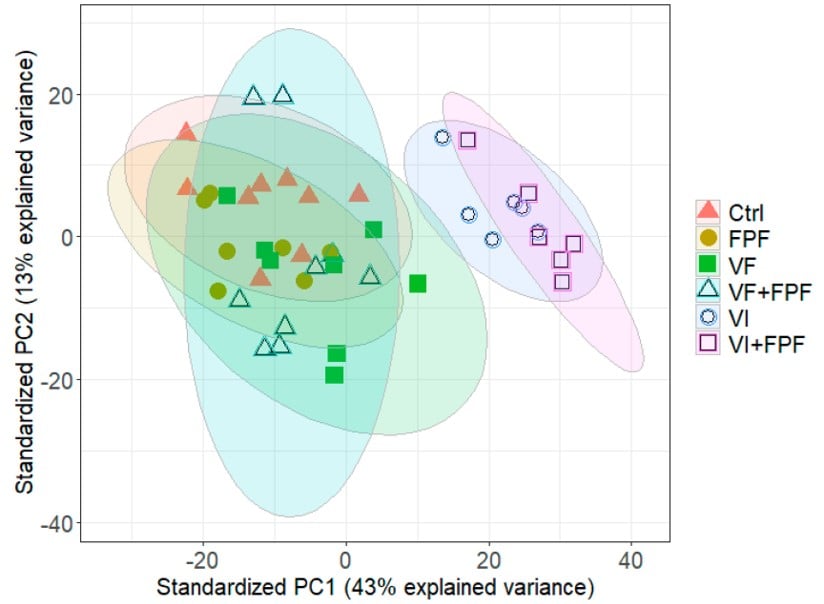
9. “California Serogroup Viruses in a Changing Canadian Arctic: A Review”
by Jumari Snyman, Louwrens P. Snyman, Kayla J. Buhler, Carol-Anne Villeneuve, Patrick A. Leighton, Emily J. Jenkins and Anil Kumar
Viruses 2023, 15(6), 1242; https://doi.org/10.3390/v15061242
Available Online: https://www.mdpi.com/1999-4915/15/6/1242
